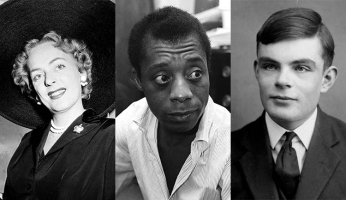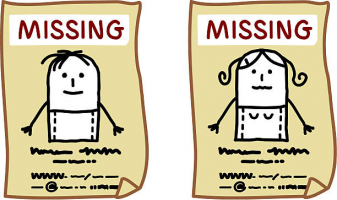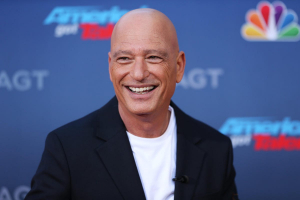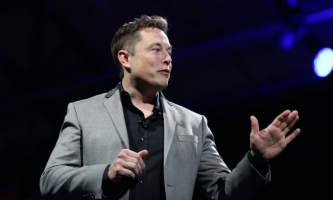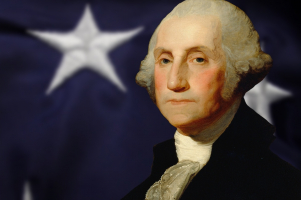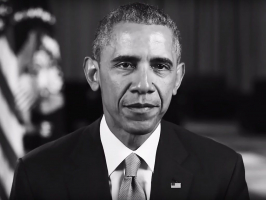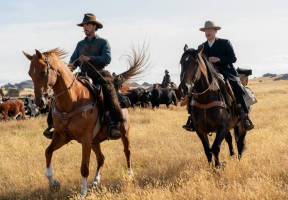Top 25 People Who Built America
The arrival of Christopher Columbus in 1492 is commonly used to begin the history of the United States. The settlers from Europe seeking a better life in ... read more...America were important contributors to the establishment of the early American colonies. The present United States of America emerged as an independent nation in the late eighteenth century. Thomas Jefferson, Alexander Hamilton, and George Washington were among the major Founding Fathers. This is a look at the most influential people in the history of the United States.
-
“You can never cross the ocean unless you have the courage to lose sight of the shore.” – Christopher Columbus
Christopher Columbus (1451-1506), an Italian adventurer, colonizer, and navigator, was born in Genoa. He is known as the main European discoverer of the Americas, and he was instrumental in bringing the Americas to the forefront of western consciousness. His discoveries and travels provided the groundwork for European colonization of Latin and North America later on.
Christopher Columbus was born in what is now Northwestern Italy, in the Republic of Genoa. His father was a middle-class wool dealer with modest beginnings for what he subsequently become. Columbus learned to sail at a young age and later worked as a business agent, sailing around Europe to England, Ireland, and later along Africa's west coast. He wasn't a scholar, but he was a self-educated man who read a lot about astronomy, physics, and navigation. He also learned Latin, Portuguese, and Spanish.
Christopher Columbus believed in the world's spherical shape (some Christians still held the view that the world was flat). Christopher Columbus, an ambitious man, aspired to locate a Western trade route to Asia's wealthy spice markets. Rather than traveling east, he planned to reach countries such as Japan and China by sailing west.
He asked the Catholic Monarchs of Spain for funds and support for his missions. As part of his offer, he stated that he wished to introduce Christianity to the "heathen nations" to the east. The Spanish kings consented to pay Columbus, partly for Christian missionary endeavors, but also to gain a competitive advantage in rich trading markets. One advantage of westward travel was that it avoided conflict with the Ottomans' expanding power in the east.
Columbus' first expedition ended in 1492. He planned to sail to Japan but ended up in the Bahamas, where he called his ship San Salvador. Columbus conducted four voyages, sailing widely across the Caribbean islands of Cuba, Jamaica, and the Bahamas, as well as to the mainland, to areas such as Panama. Columbus was not the first to arrive in America. Previous successful trips were Leif Ericson's Norse expedition. Columbus, on the other hand, was the first to travel to America and establish permanent settlements. Over the next 400 years, Columbus' travels and reports spurred all of the major European countries to want to colonize sections of America. Columbus was a talented navigator who believed wholeheartedly in the possibilities of adventure. In his diary notes, he stated that his steely will kept the group together when they thought they'd never reach land.
His dictatorial manner, though, caused conflict aboard the boats he steered. Columbus was intensely devout, and his tendency to be sanctimonious and judgmental of human flaws did not sit well with sailors who were more earthy and practical in their outlook on life. While he was religious in some ways, he also held the popular belief at the time that European Christians had moral superiority because they followed the one true faith. Although Columbus restrained some of his sailors' greatest excesses, he took back human slaves and looted indigenous people's property.
The Spanish monarchs designated Columbus Viceroy and Governor of the Indies on the island of Hispaniola as part of the agreement. He also gave his brothers the governorship. However, under the instructions of the Spanish monarchs, Columbus was captured and imprisoned in 1500. The governorship of the new colonies was accused of incompetence, misrule, and brutal behavior. Columbus and his brothers were released after several weeks in jail, but Columbus was no longer allowed to be governor of Hispaniola.
Columbus got more religious near the end of his life. He grew particularly interested in Biblical prophesies and wrote his own 'Book of Prophecies' (1505). He was also dissatisfied with his lack of public attention and perceived relegation by the Spanish rulers. In 1503, he sent a letter to the monarchs outlining his feelings of unrecognized sacrifice: “I came to serve you at the age of 28 and now I have not a hair on me that is not white, and my body is infirm and exhausted. All that was left to me and my brothers has been taken away and sold, even to the cloak that I wore, without hearing or trial, to my great dishonor.” – Lettera Rarissima to the Sovereigns, Fourth Voyage (7 July 1503)
Columbus died in 1506, at the age of 54, of a heart attack caused by reactive arthritis. The rigors of sailing across the seas undoubtedly taxed Columbus' health. He was frequently in physical agony from his excursions near the end of his life.
Many European Americans see Columbus as the man who helped place America on the map. Columbus Day is celebrated on October 12th in Spain and throughout the Americas. Others are more critical of Columbus, stating that his "finding" was not actually a discovery because the region was already populated and that his activities led to the mistreatment and genocide of the Native Americans who already lived there.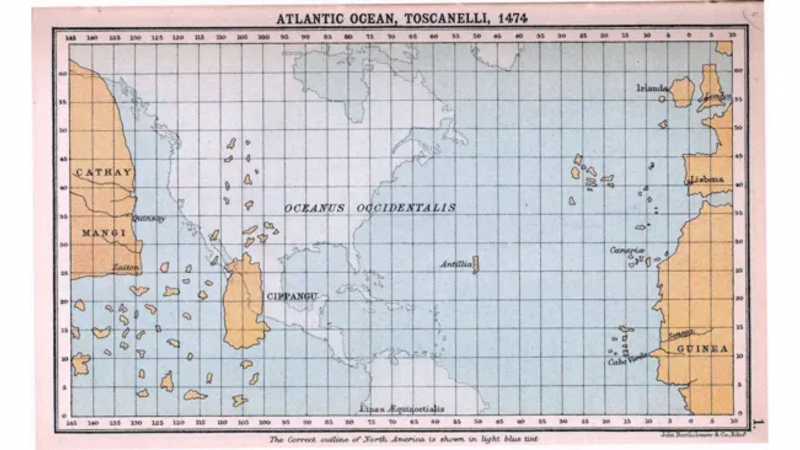
A map from 1474, with the perceived geography of the world in yellow (superimposed on actual land) 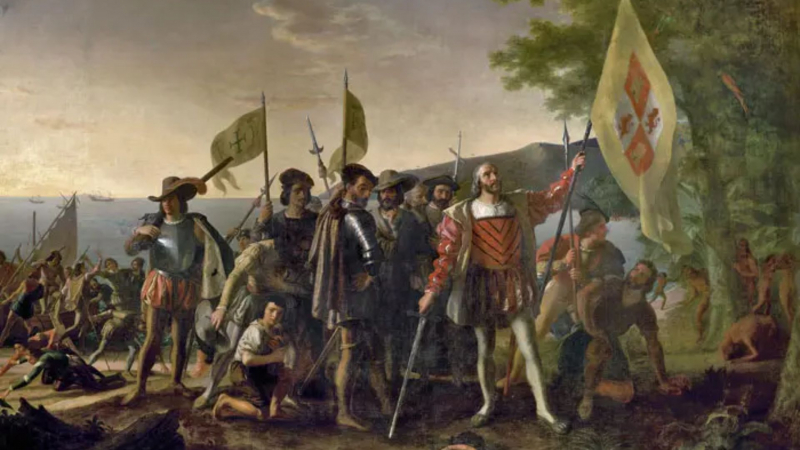
Landing of Columbus (12 October 1492), painting by John Vanderlyn -
In September 1620, the Mayflower set sail from England with 100 individuals, many of whom were seeking religious freedom in the New World. The ship arrived on the shores of Cape Cod, Massachusetts, in November of that year. A scouting expedition was dispatched, and in late December, the group landed in Plymouth Harbor, where they would establish the first permanent European settlement in New England. The Pilgrim Fathers, or simply the Pilgrims, were the first settlers of Plymouth Colony.
The Mayflower Voyage
The group that set out from Plymouth, in southwestern England, in September 1620 included 35 members of the English Separatist Church, a radical Puritan faction. After illegally seceding from the Church of England in 1607, the Separatists fled to the Netherlands, first to Amsterdam and then to Leiden, where they remained for the following decade under the relatively mild Dutch rules. They began to make arrangements to live in the New World because of economic hardships and anxieties of losing their English language and history. Their intended destination was a location near the Hudson River, which was regarded to be part of Virginia's previously established colony at the time. In 1620, the would-be settlers formed a London stock company to fund their voyage aboard the Mayflower, a three-masted commercial ship. The Speedwell, a smaller vessel that accompanied the Mayflower and carried part of the passengers, proved unseaworthy and was forced to return to port by September.The Mayflower Compact
Some of the most notable passengers on the Mayflower included Myles Standish, a professional soldier who would become the new colony's military leader, and William Bradford, a Separatist congregation leader and author of "Of Plymouth Plantation," his account of the Mayflower voyage and the founding of Plymouth Colony.Rough seas and storms prevented the Mayflower from reaching its intended destination in Virginia, and after a 65-day voyage, the ship arrived on the shores of Cape Cod, docking at Provincetown Harbor in mid-November. Before the would-be colonists even exited the ship, there was strife. The passengers who were not separatists - dubbed "strangers" by their more doctrinal peers - argued that the Virginia Company contract was null and void since the Mayflower landed beyond Virginia Company territory. "Several foreigners made discontented and mutinous statements," William Bradford subsequently recounted.
Settling at Plymouth
The Pilgrims realized that if something wasn't done fast, every man, woman, and family would be on their own. While still on the ship, a group of 41 men signed the so-called Mayflower Compact, agreeing to form a "social body politic." This document would serve as the basis for the new colony's government. The Mayflower Compact, signed on November 11, 1620, was the first treaty to create self-government in the New World.In mid-December, after sending an exploring team ashore, the Mayflower arrived at what became known as Plymouth Harbor, on the western side of Cape Cod Bay. The immigrants spent the next several months largely on the Mayflower, transported back and forth from shore to establish their new store and living facilities. Burial Hill was the site of the settlement's initial fort and watchtower (the area contains the graves of Bradford and other original settlers).
During that first winter, more than half of the English settlers died as a result of poor diet and inadequate shelter in the hard weather. Leaders like Bradford, Standish, John Carver, William Brewster, and Edward Winslow helped keep the remaining settlers together. Bradford was unanimously elected governor of Plymouth in April 1621, following the death of the settlement's first governor, John Carver; he would be reelected 30 times and remained as governor of Plymouth for all but five years until 1656.
The First Thanksgiving
The Wampanoag people, who had lived in the area around Plymouth Colony for 10,000 years before Europeans arrived, were the original inhabitants of the area. Soon after the Pilgrims established their settlement, they met Tisquantum, or Squanto, an English-speaking Native American. Squanto was a member of the Pawtuxet tribe (from present-day Massachusetts and Rhode Island), which was captured by explorer John Smith's soldiers in 1614-15. He escaped slavery in England and returned to his native area to find that most of his people had perished from the plague. Squanto taught the Pilgrims how to plant corn, which became a major crop, as well as where to fish and hunt beaver, in addition to interpreting and mediating between colonial authorities and Native American chiefs (particularly Massasoit, chief of the Pokanoket). The Pilgrims famously celebrated a harvest feast with the Pokanokets in the fall of 1621; the meal is today considered the basis for the first Thanksgiving holiday. The first Thanksgiving most certainly did not feature turkey or mashed potatoes (potatoes were still making their way from South America to Europe), but the Wampanoag brought deer and plenty of local fish, as well as the products of the first pilgrim harvest, including pumpkin.Relations with Native Americans
Squanto died in 1622 while working as Bradford's guide on a voyage across Cape Cod, after attempting to strengthen his own influence by turning the Pilgrims against Massasoit.Other tribes, such as the Massachusetts and Narragansetts, were hostile to European settlers, and Massasoit's partnership with the Pilgrims strained relations among the region's Native American peoples. As the former group controlled more and more areas over the next few decades, relations between settlers and Native Americans deteriorated. By the time William Bradford died in 1657, he had already expressed concern that violence might soon tear New England apart. Bradford's warnings came true in the form of King Philip's War in 1675. (Philip was the English name of Metacomet, Massasoit's son and Pokanoket leader since the early 1660s.) This fight killed over 5,000 New England residents, including three-quarters of Native Americans. In terms of the population murdered, King Philip's War was more than twice as expensive as the American Civil War and seven times as expensive as the American Revolution.
The Pilgrim Legacy in New England
Under King James I and his successor, Charles I, repressive attitudes toward religious nonconformists in England drove many men and women to follow the Pilgrims to the New World. Following the Mayflower, three other ships arrived in Plymouth: the Fortune (1621), the Anne, and the Little James (both 1623). In 1630, the Massachusetts Bay Company secured a charter from King Charles I and landed a group of 1,000 Puritan refugees under Governor John Winthrop in Massachusetts. Winthrop quickly built Boston as the capital of the Massachusetts Bay Colony, which would become the region's most populated and richest colony.In comparison to other groups that established colonies in New England, such as the Puritans, the Pilgrims of Plymouth did not enjoy long-term economic success. Some notable members of the original group, including Brewster, Winslow, and Standish, left the colony after the early 1630s to establish their own colonies. The cost of fighting King Philip's War harmed the colony's already-struggling economy. King James II chose a colonial governor to reign over New England less than a decade after the conflict, and Plymouth was integrated into the larger entity of Massachusetts in 1692.
Bradford and the other Plymouth settlers were initially referred to as "Old Comers" rather than "Pilgrims." This changed after the discovery of a text in which Bradford referred to the settlers who left Holland as "saints" and "pilgrimes." At a bicentennial celebration of the colony's founding in 1820, orator Daniel Webster used the term "Pilgrim Fathers," and the phrase stuck.
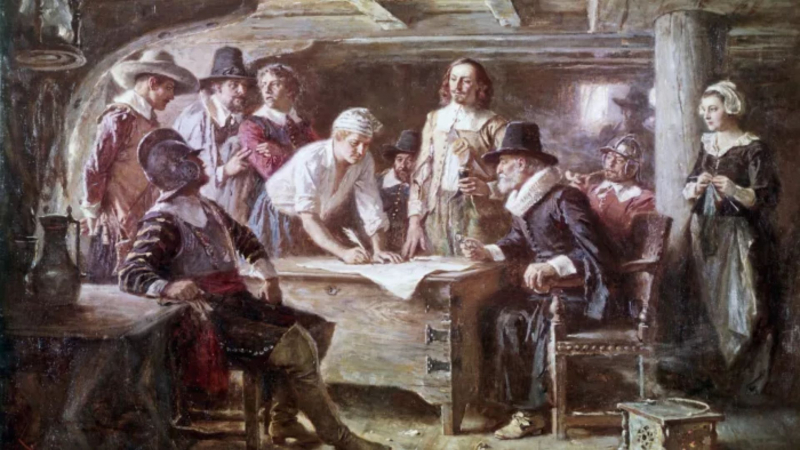
Bettmann Archive/Getty Images 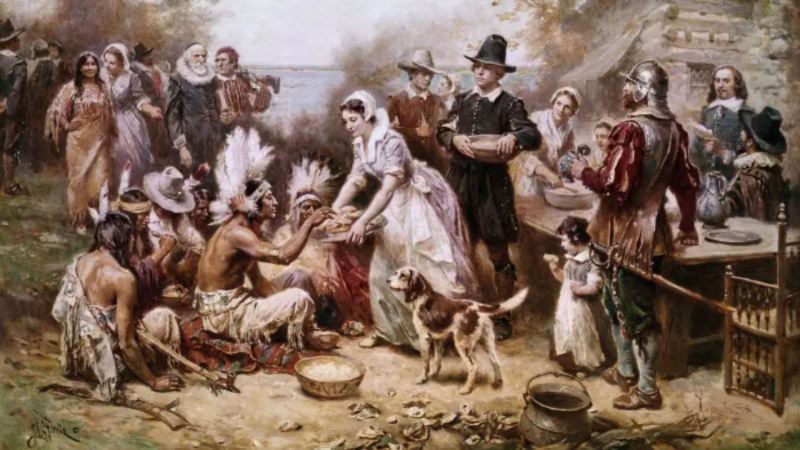
Bettmann Archive/Getty Images -
William Penn was the son of Admiral Sir William Penn and was born into a rich Anglican family. In 1644, he was born in Tower Hill, London, but following a childhood bout of smallpox (during which he lost all his hair), his family relocated to a modest country estate in Essex. He went to Chigwell School and then Christ Church, Oxford.
Early life
Penn's father had inherited a substantial estate in Ireland as a reward for his assistance to Cromwell during his invasion of Ireland. When William Penn was 15, his family fell out of favor with Cromwell and went to Ireland. However, Cromwell died a year later, and Penn's father, as an admiral in the navy, was essential in successfully bringing the exiled Charles II back to England by boat. Penn's devotion was much appreciated by the King, who felt obligated to his family.
While living in Ireland, William Penn was touched by Quaker Thomas Loe's sermon, which piqued his interest in the nonconformist religion. Later, he reflected on how this fascination was accompanied by mystical experiences.The heart of the Quaker religion was the belief that there should be no middleman between man and God. As a result, Quakers refused to pledge allegiance to either the king or Parliament. This was radical opposition during the turmoil of the English Civil War.Penn returned to England and enrolled in Christ Church, Oxford University, where he became more involved in debating dissenting theological beliefs with other academics.When Oxford theologian John Owen was sacked and censured for his dissident ideas, Penn supported the dean and continued to interact with him. Because of his attitude, the university penalized him, and his father, concerned about the harm to the family's name, pulled him from Oxford and later sent him to Paris, thinking he would change his extreme beliefs. However, in Paris, he received more spiritual concepts from Moise Amyraut, a Christian humanist whom Penn admired.Penn returned to London to study law, but the city was soon ravaged by the disease and subsequently the Great Fire of London; as a result of the plague, Penn briefly relocated to Ireland.
Penn was incarcerated on multiple occasions. While incarcerated in 1669, he penned No Cross, No Crown (1669). It expanded Quaker thought in an interesting way and is considered a masterpiece of prison literature. Additionally, he penned the introduction to the George Fox Journal. In these essays, he extolled the advantages of early, "primitive," Christianity, which placed a strong focus on personal communion with God prior to the rise of established churches. Penn rose to prominence as one of the major Quaker advocates. Despite the fear of imprisonment, he was unflinching in his criticism of political and ecclesiastical establishments and provided a strong presentation of his religious principles. Without the reputation of his family, Penn might have faced harsher penalties. However, Penn started preparations to emigrate to North America, where there was a reputation for greater religious tolerance, given the environment of animosity toward Quakers.Founding of Pennsylvania
With a group of other Quaker businessmen, Penn started laying the groundwork for a brand-new settlement in New Jersey in 1677. Penn enthusiastically created a charter of privileges for the community while he was still in England. He promised free and fair jury trials, freedom of religion, free and fair elections, and freedom from unjust imprisonment based on his own experiences. Charles II left a legacy that aided the settlement since he was ready to give these political and religious rebels a surprisingly generous territory because he believed he owed Penn's father a lot of money (Charles possibly saw this as a good way to be rid of troublemakers). The new community was known as Penn and Sylvania (after Sir William Penn) (woods) With the help of this Royal bequest and some persuasive haggling, Penn was able to acquire 45,000 acres of property.
The model town enacted the groundbreaking rules of free elections, fair trials, and a separation of powers as well as freedom of worship (for those who believed in God). The Pennsylvania Frame of Government (1682) contained concepts that would serve as the cornerstone of the American constitution. Penn's belief in the division of powers stemmed from his desire to limit the potential for one man to rule in a tyrannical manner. According to him, the constitution would leave present and future mankind with: “no power of doing mischief, that the will of one man may not hinder the good of a whole country.”A guarantee of religious tolerance drew people from all over Europe to the new colony, including religious minorities like Quakers, French Huguenots (French Protestants), Amish, and Mennonites. Penn departed England in 1682 to assist in the construction of the metropolis he had imagined in his writings. He played a key role in putting his speculative policy recommendations into practice. Penn mixed pragmatic realism with idealism which was on the verge of utopianism. When a practical answer was required, he tried to uphold his belief in liberal government.
Penn introduced a more lenient judicial system. Only two murder and treason offenses received the death penalty (there were 200 capital offenses in England). Additionally, he aimed to transform jails into modern centers of rehabilitation rather than punishment. In addition to treating and decriminalizing mental illness, Quakers were pioneers in the field. Pennsylvania flourished as a hub of trade and research thanks to the extensive provision of education. Additionally, Penn enacted stringent, "puritanical" regulations on "immoral practices," outlawing cockfighting, gambling, and defining standards for intoxication, profanity, and lying.
Accord with native Indians
In addition to studying Pennsylvanian city politics, he also traveled across the interior of New Jersey, making friends with native Indian tribes, particularly the Lenni Lenape Indians. He became familiar with the primary tribes' languages and dialects, which improved communication and promoted harmony. Penn made sure that the Indian tribes received a fair price for their land, and this was used as an illustration of how well settlers and native Indians got along.
After the accession of his buddy, the Duke of York, who later became King James, Penn returned to England and used his royal connections to secure the release of political prisoners such as Quakers and John Locke. The later Act of Toleration (1689) contributed to making Penn's and others' call for religious tolerance legal.
An Essay Towards the Present and Future Peace of Europe (1693), one of Penn's utopian works, envisioned an international organization to help prevent violence in Europe.
In order to foster workable solutions and positive ties, he presented the notion of a federation of all the American colonies in 1699. The concept for the future United States of America originated with this. A federation of the European States, which is frequently regarded as the precursor to the European Union, was another notion he put up.
Due to financial issues, Penn was compelled to leave America and return to England in 1701. He was in serious financial trouble as a result of Philip Ford, his financial advisor, defrauding him of a sizable sum. Ford had benefited from Penn's lack of attention to detail by getting him to sign documents without reading them. Penn attempted to sue Ford in court, but his efforts to improve his financial circumstances were generally fruitless. In fact, Penn even spent time in a debtors' prison for bankruptcy in 1702. He struggled with money issues and had a stroke in 1712 that rendered him paralyzed. His final years were not joyful. In Berkshire's Ruscombe, he passed away in 1718.
Penn is regarded as one of America's early founding fathers. He represented the American aspiration to establish a free and just society based on republican ideals. His avant-garde liberal governing ideas were adopted several decades later and included in the new American constitution of 1776.
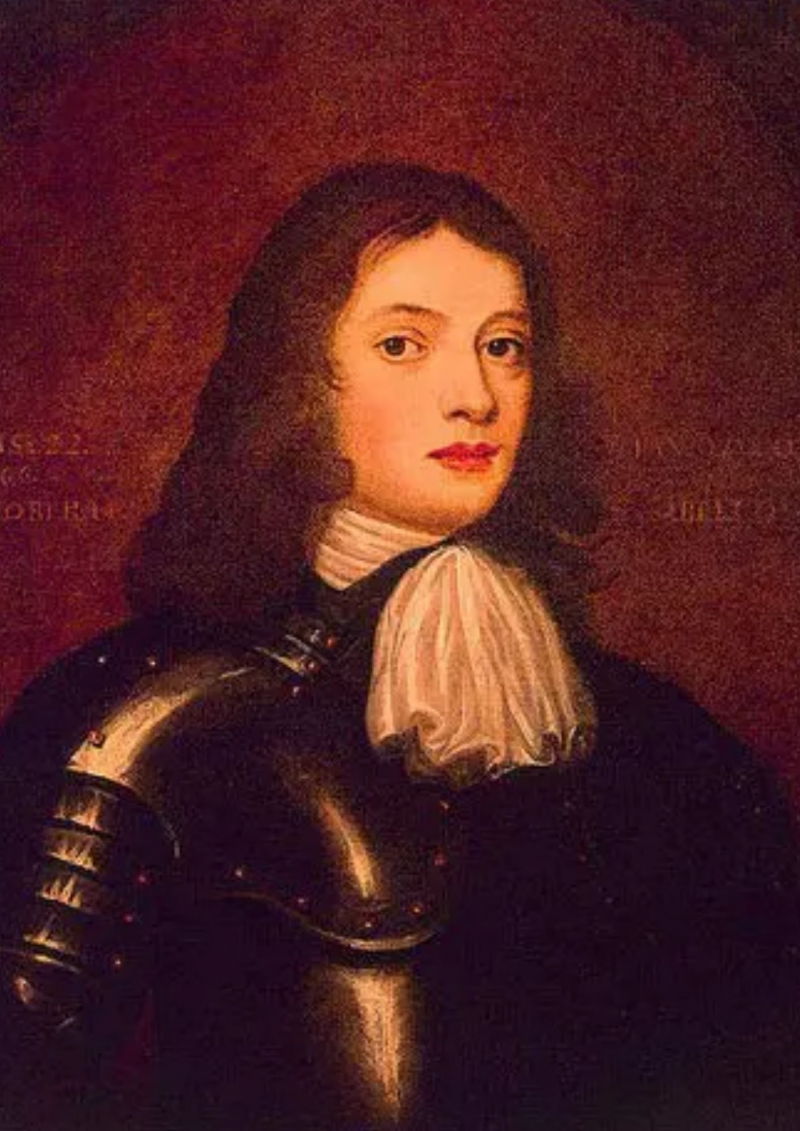
William Penn at 22 - www.biographyonline.net 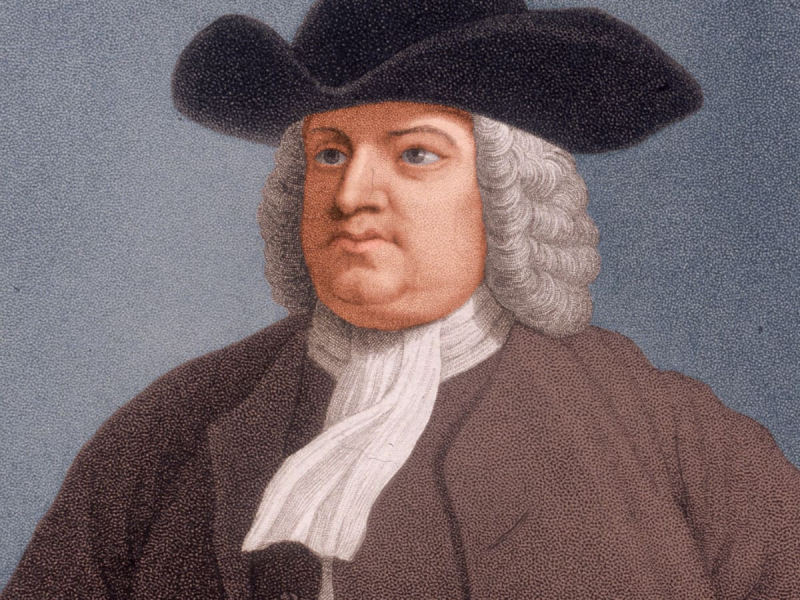
bio. Biography.com -
Benjamin Franklin (1706-1790) was a scientist, ambassador, philosopher, statesman, writer, and businessman, as well as a well-known free thinker and wit. Franklin is known as "America's Renaissance Man," and he was instrumental in building a united American identity during the American Revolution.
Benjamin Franklin was born on January 17, 1706, to a big and impoverished family. His father had 17 offspring from two women. Benjamin grew up in his family's candle-making business and his brother's printing firm. Benjamin would study and learn about a wide range of things, from Sophocles to modern science, whenever he could. While his coworkers enjoyed a relaxing lunch break, Benjamin Franklin would pour through books from the bookstore while snacking on raisins.
He also began writing pieces for the 'New England Courant' under a pseudonym at a young age; Franklin wrote under pseudonyms throughout his life. After a few were published, he confessed to his father that he had written them. His father, rather than being pleased, thrashed him for his impudence. As a result, at the age of 17, Benjamin quit the family company and traveled to Philadelphia.
Benjamin's reputation as a caustic man of letters blossomed in Philadelphia. His writings were both amusing and satirical, and his ability to bring down prominent characters piqued the interest of Pennsylvania governor William Keith. Fearing Benjamin's humor, William Keith gave him a job in England with all costs paid. Benjamin accepted the opportunity, but while in England, the governor abandoned Franklin, leaving him penniless.
Benjamin Franklin was constantly put in hard situations, yet his natural resourcefulness and drive always triumphed over adversity. In London, Benjamin got work as a printer. He was nicknamed the "Water American" because he preferred water to the standard six pints of alcohol each day. Franklin observed that "a pennyworth of bread contains more nourishment than a quart of beer."
Mr. Denham, a Quaker merchant, offered him a place in Philadelphia in 1726. Franklin agreed and sailed back to the United States.In the tax issue, Franklin was appointed as an ambassador to England. He had conferences with political leaders for five years while maintaining his scientific research and musical studies.
Later, Franklin was instrumental in alerting the British authorities to the hazards of taxing the American colonies. Franklin was essential in persuading the British Parliament to repeal the despised Stamp Act in a battle of wills. This reversal, however, proved to be brief. When fresh levies were imposed, Franklin declared himself a supporter of the fledgling American independence cause.In 1775, he returned to a war-torn America. He was one of five members chosen to draft the American Declaration of Independence, which was written by Thomas Jefferson.
Franklin was appointed as America's ambassador to France, where he fought hard to obtain French support for America's war effort. Franklin was well admired in French society during his lifetime, and his image was displayed in many homes.
The newly created US government begged Franklin, then 75, to be America's representative in negotiating a peace treaty with Great Britain, which was signed in 1783.He was eventually replaced as French ambassador by Thomas Jefferson, who said of his immense capacity, "I succeed him; no one can replace him."
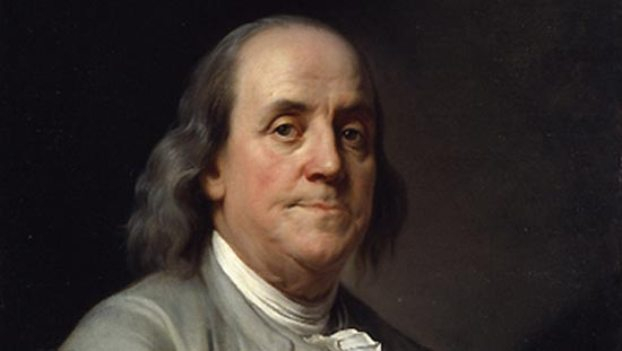
Nghiên cứu Quốc tế 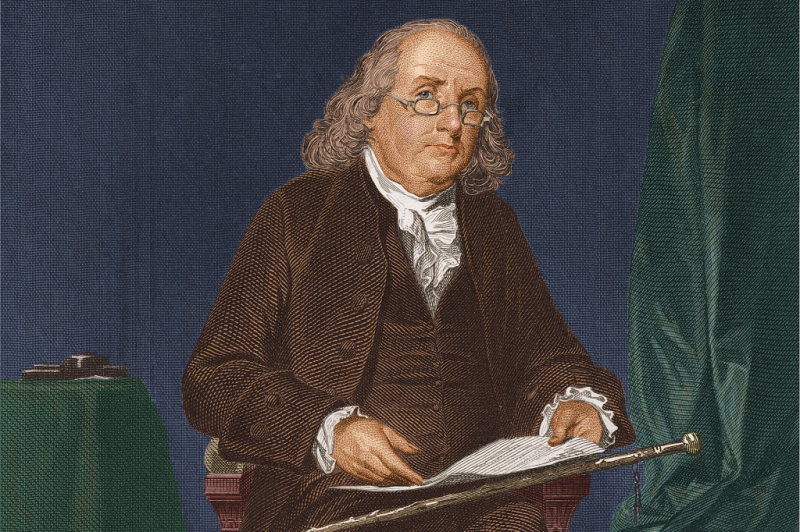
Sống Đẹp -
During the American Revolutionary War, George Washington (1732-1799) served as Commander in Chief of the Continental Forces. He was also the first president of the United States, serving from 1789 to 1797. Washington is known as the "Father of the Nation" and a symbol of Republican democracy. His picture can be found on coins and statues all around the United States.
George Washington was born in Virginia in 1732. His family was affluent, and they owned a large number of slaves who worked on the plantations. As a planter, he felt limited by British laws and taxes, which contributed to his decision to resist the British in the later Wars of Independence. Washington was interested in military things and exploring the Western territories in addition to working as a planter. In May 1775, delegates utilized his military experience to elect Washington as commander of the United States Continental Army.
The American Revolution would last six years. Washington had to deal with poorly trained and equipped men, especially in the beginning. In the early days of the war, he pursued a strategy of annoying the British while avoiding full-scale battles with them. It wasn't until 1781 that Washington was able to defeat the British at Yorktown with the assistance of French forces.
After the victory was secured in 1783, Washington resigned as Commander in Chief. He wanted to emphasize that he would not be the de facto military ruler. Washington desired the employment of the new American constitution and democratic government. The new constitution and Declaration of Independence, according to Washington, were an opportunity to establish a new type of government and society founded on human rights.
Washington maintained considerable support as a successful military leader, and given the obstacles confronting the developing republic, he ran for public office and the presidency. Washington was elected President of the United States by a huge majority and served from April 1789 to March 1797. Washington skillfully kept the United States out of confrontations with the United Kingdom and France as President. During this period of peace, the new country was able to rebuild its national finances and acquire a significant period of stability.
Washington put an excise levy on spirits in 1791. The federal government needs to raise tax revenue to pay off war debts. The so-called "Whiskey Tax" was widely despised, and many citizens revolted against tax collectors. Washington rode out to Western Pennsylvania to meet with the insurgents. Although the levy was difficult to collect, Washington prevented the revolt from escalating and helped to create the notion of federal taxes.
Many norms and practices that are still in use today were established during Washington's administration. This featured the establishment of a cabinet system, as well as the President's inaugural address and title. His Republican beliefs left an indelible mark on American society and governance. Despite his popularity, President Obama had to be persuaded to run for a second term. Both Thomas Jefferson (Democrat-Republicans) and Alexander Hamilton (Federalist Party) set aside their policy disagreements to persuade Washington to run for re-election. They believed that only Washington could keep the new country together.
Washington concurred, but by the end of his second term, he had grown tired of politics, particularly the factionalization of politics into distinct parties. Despite mainly agreeing with their policies, he refused to join the Federalists. In some ways, Washington loved the idea of centralized power. Despite his opposition to the British, he recognized the power of a unified political body. Washington, on the other hand, was keen to avoid the pomp and ceremony associated with monarchs.
In 1796, he delivered a Farewell Address in which he discussed civic virtue and political governance. It reflected Washington's conviction in the virtues of the union of states, as well as his desire for a peaceful foreign policy and commitment to the constitution and democracy.George Washington was universally regarded as a capable administrator and a man of exceptional integrity. Washington is thought to exemplify integrity, self-discipline, courage, honesty, resolve, and respect for others.
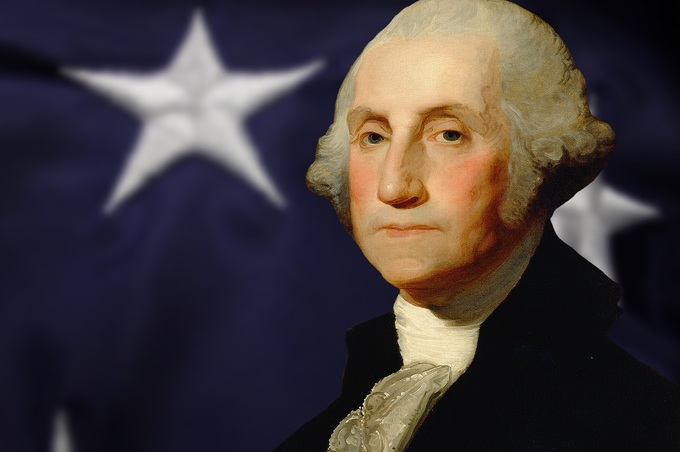
VnExpress 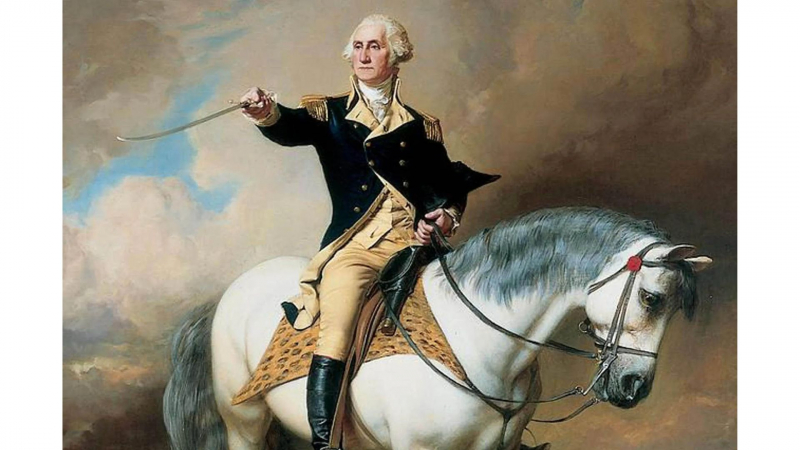
rams-vnu.org -
Daniel Boone (1734-1820) was an American frontiersman. Boone was an American pioneer and explorer who helped to explore Kentucky's new colony, so opening up America to the uncharted west. He established Boonesborough, one of the first communities west of the Appalachian Mountains. He participated in the American Revolutionary War before settling in eastern Missouri. He became an iconic folk figure and symbol of the American frontiersman who ventured into uncharted western territories.
Boone was born near Reading, Pennsylvania, on October 22, 1734, the son of Squire Boone and Sarah Morgan Boone. Boone's parents were Quakers, but due to a disagreement between Squire Boone and the Society of Friends, the family left Pennsylvania about the beginning of May 1750 and settled near the Yadkin River in what is now Davie County, North Carolina, in October of that year. Daniel Boone was on his way to his first extended journey as a professional hunter. He left the family's camp in the Shenandoah Valley with one buddy and spent several months hunting in the Blue Ridge Mountains and along the Roanoke River.
Boone was a teamster on General Edward Braddock's ill-fated expedition to Fort Duquesne in 1755, following which he returned to the Yadkin Valley and married Rebecca Bryan, a member of a notable local family, on August 14, 1756. They had six sons and four girls and settled near present-day Farmington, Davie County, North Carolina. Boone temporarily relocated his family to Culpeper County in early 1760 to avoid the fighting of the Cherokee War and then resumed his business as a professional hunter in the backcountry. He traveled as far as the Holston and Clinch rivers, earning a reputation for his proficiency with a pistol and traps.
Boone and five colleagues crossed the Cumberland Gap into Virginia's Kentucky wilderness in May 1769. They stayed there for two years, exploring, hunting, and trapping before returning to the Yadkin Valley in the spring of 1771. In September 1773, Boone returned to Kentucky, escorting a small band of farmers who wanted to build a community there, but Indians attacked the party and killed one of Boone's sons on the way. Boone and his family relocated to the Clinch River valley and stayed for two years. During Dunmore's War in 1774, Boone was a captain in the Fincastle County militia, directing the region's fortifications under Colonel William Preston's leadership.
In the Kentucky Portion of Virginia
Richard Henderson, a North Carolina land speculator, hired Boone in 1775 to construct a route from the westernmost towns into Kentucky. The path, later known as the Wilderness Road, led from present-day Kingsport, Tennessee, across the Cumberland Gap to the Kentucky River, where Henderson's colonists, including Boone's family, established Boonesborough, one of Kentucky's early communities. The following summer, Indians kidnapped one of Boone's daughters and two of her companions. Boone pursued the party for three days through the bush before rescuing the girls on the banks of the Licking River. Boone's reputation as a woodsman was built on the skills he demonstrated on this and other occasions, but some of the exploits later attributed to him were embellishments of more modest achievements or outright fiction.
Boone led an expedition of around thirty men to the salt springs on the Licking River in January 1778. He was apprehended while hunting in February and carried to the Shawnee leader Blackfish, from whom he learned of an Indian plot to push the whites out of Kentucky. Boone volunteered to obtain the surrender of his soldiers at the salt springs, accompany the Indians to Boonesborough the next spring, and assist them in negotiating the fort's surrender. He eventually persuaded the salt manufacturers to surrender their rifles. Some of the captured individuals were sold to the British. The rest were adopted by Blackfish, including Boone, who was given the name Sheltowee, or Big Turtle. Boone eventually fled in time to return to Boonesborough and command the settlement's victorious defense. However, his intentions were questioned, in part because of the Loyalism of his wife's family, and Boone was eventually summoned before a court-martial. He was acquitted and quickly promoted to major in the militia. After being harmed by the legal action, Boone and some of his friends established a separate hamlet known as Boone's Station, and Boone built his own cabin on Marble Creek, several miles away from Boone's Station.
John Filson’s Book on the Settlement of Kentucky
Following the establishment of Fayette County in 1780, Boone was appointed a lieutenant colonel in the militia, elected to the House of Delegates, and appointed sheriff. He was taken prisoner but swiftly paroled while attending the congress that assembled in Richmond in May 1781 but adjourned first to Charlottesville and then to Staunton when the British army marched up the James River. Early in 1782, Boone returned to Kentucky, and in August of that year, he helped lead an attack on a band of Indians at Blue Lick, when sixty-six Kentuckians were killed, including another of his sons. At around the same period, Boone met John Filson, a Pennsylvania schoolmaster who incorporated a romanticized version of Boone's life in his Discovery, Settlement, and Present State of Kentucky (1784). When a French edition of the book was released in Paris in 1785, it brought Boone international acclaim.
In December 1782, Boone was appointed deputy surveyor of Fayette County and began speculating in land, but his projects failed and he was entangled in costly and futile lawsuits. In 1783, he relocated to Limestone and founded a trade store and bar in the little Ohio River port town. Boone was named a trustee when Maysville was founded in 1787, and he was elected to the House of Delegates from Bourbon County the following year. In 1789, he relocated to Point Pleasant and made another failed attempt to open a business. Boone was elected to the General Assembly for the third time in 1791, representing Kanawha County. He served on the Committee on Propositions and Grievances for all three of his House terms, and in his final term, he was also named to the Committee on Religion. While at the gathering, Boone agreed to supply supplies to the county militia. His shop debts, however, made obtaining credit impossible, and he lost the contract, shuttered his store, and went into a cabin in the woods approximately sixty miles up the Kanawha River from Point Pleasant. For the rest of the decade, Boone was burdened by debt, and a warrant for his arrest was issued in 1798 but never enforced.
Later Years
In October 1799, the Spanish governor of Louisiana handed Boone a parcel of land near the Missouri River at Femme Osage. Boone spent the remaining twenty years of his life in what is now Missouri, but a court found in 1809 that he had not met the criteria of the grant, and he petitioned Congress for a tract of the public domain in appreciation of his services to the country. Congress confirmed his rights to the Missouri land five years later. On September 26, 1820, Boone died at the house of his son Nathan Boone and was buried in the family graveyard. At the request of the Kentucky legislature, bones assumed to be those of Boone and his wife were transferred from a Missouri graveyard in 1845 and reinterred with much ceremony in a cemetery near the state capitol in Frankfort, Kentucky.
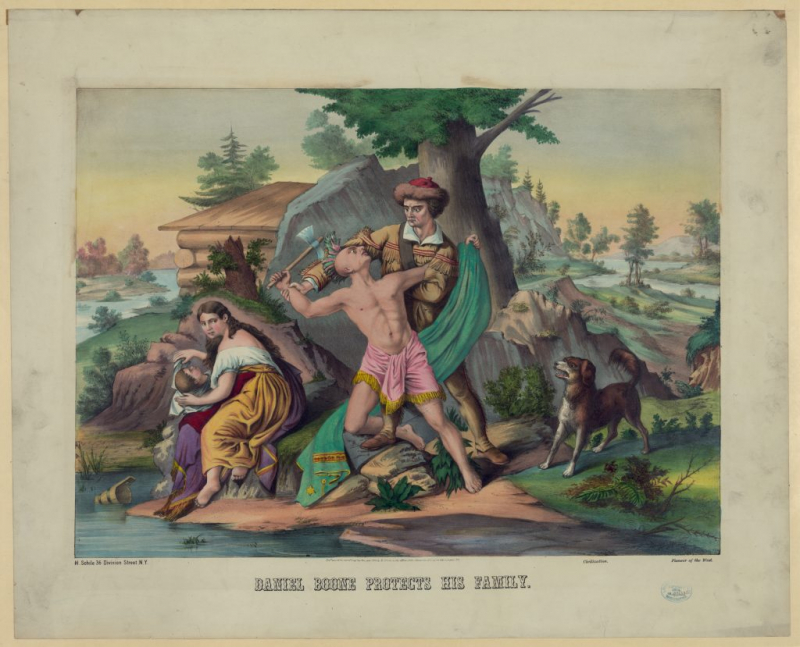
Daniel Boone Protects His Family - Library of Congress Prints & Photographs Division 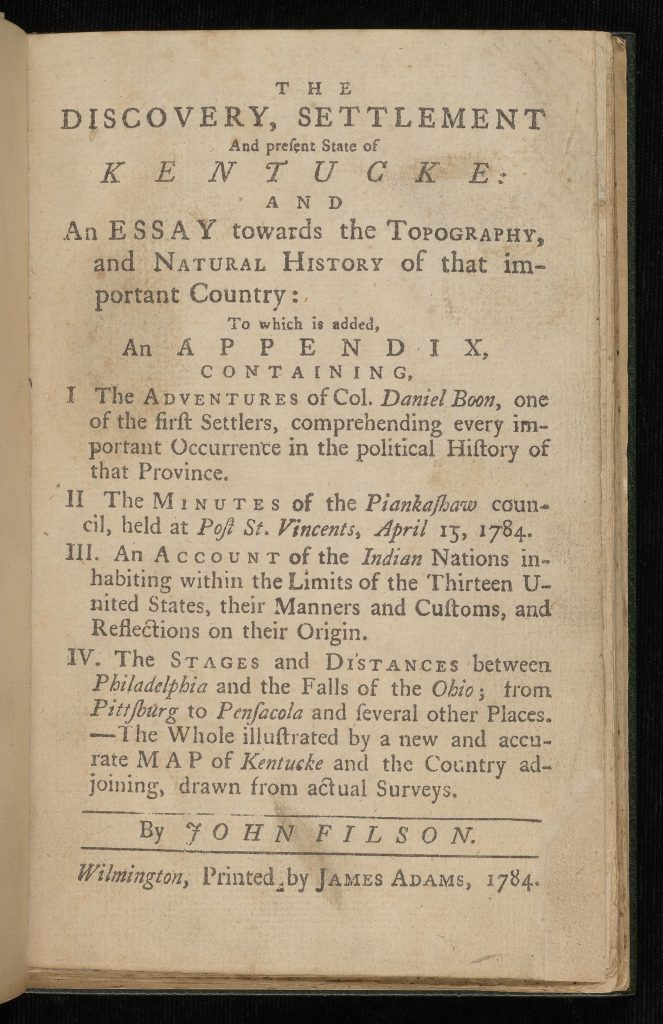
The Discovery, Settlement and Present State of Kentucke - University of Virginia Special Collections -
Thomas Paine (1737-1809) was an English-American political activist and writer. In 1776, he published the best-selling booklet Common Sense, in which he campaigned for America's independence from Great Britain. It was extensively read and contributed to the spread of the idea of American independence. "Without the pen of the author of Common Sense, Washington's sword would have been lifted in vain," John Adams declared. Throughout his career (1776-83) he authored numerous essays promoting the revolution and republican ideas. He also backed the French Revolution and wrote the renowned book "Rights of Man" (1791).
Paine was born in Thetford to modest parents. He worked as an apprentice at his father's corset factory for a period. He then worked in an excise office in Grantham, Lincolnshire, and subsequently in Lewes, East Sussex. He married his first wife, Elizabeth Olive, in 1771. Tomas Paine grew increasingly involved in local political concerns at this time. He was a member of a local Vestry church, which collected taxes and tithes to help the needy. Paine became involved in a movement to improve working conditions for excise tax laborers in 1772. This resulted in his debut book, The Case of the Excise Officers. After being fired from his job and narrowly evading debtors jail by selling his household goods, Paine traveled to London and, after meeting and impressing Benjamin Franklin, traveled to America under Franklin's patronage.
Paine rose to prominence in America after publishing a revolutionary treatise called Common Sense. It was a plea for American independence based on the establishment of a just republican government. It became a best-seller and had a significant impact on the tone of the American independence movement. Paine's ideas were not novel, but he had the ability to popularize them through the use of simple but effective language. During the American Revolution, George Washington frequently read Paine's works (from his Crisis Pamphlet series) to inspire his troops.Paine was granted honorary French citizenship and elected to the National Convention alongside George Washington and Benjamin Franklin. He was a staunch supporter of the French republic, but, to many people's astonishment, he opposed Louis XVI's death, suggesting that it would be better to exile him to the United States. The challenge for Paine began with Robespierre's rise to power. Paine and other Girondins were arrested and imprisoned in December 1793 as part of their increasingly oppressive dictatorship.
Paine's cell was marked for execution; only his poor health and a mix-up kept him from the guillotine. Paine was liberated with the fall of Robespierre; after becoming increasingly disillusioned with Napoleon's administration, Paine went to the United States at the invitation of President Jefferson.
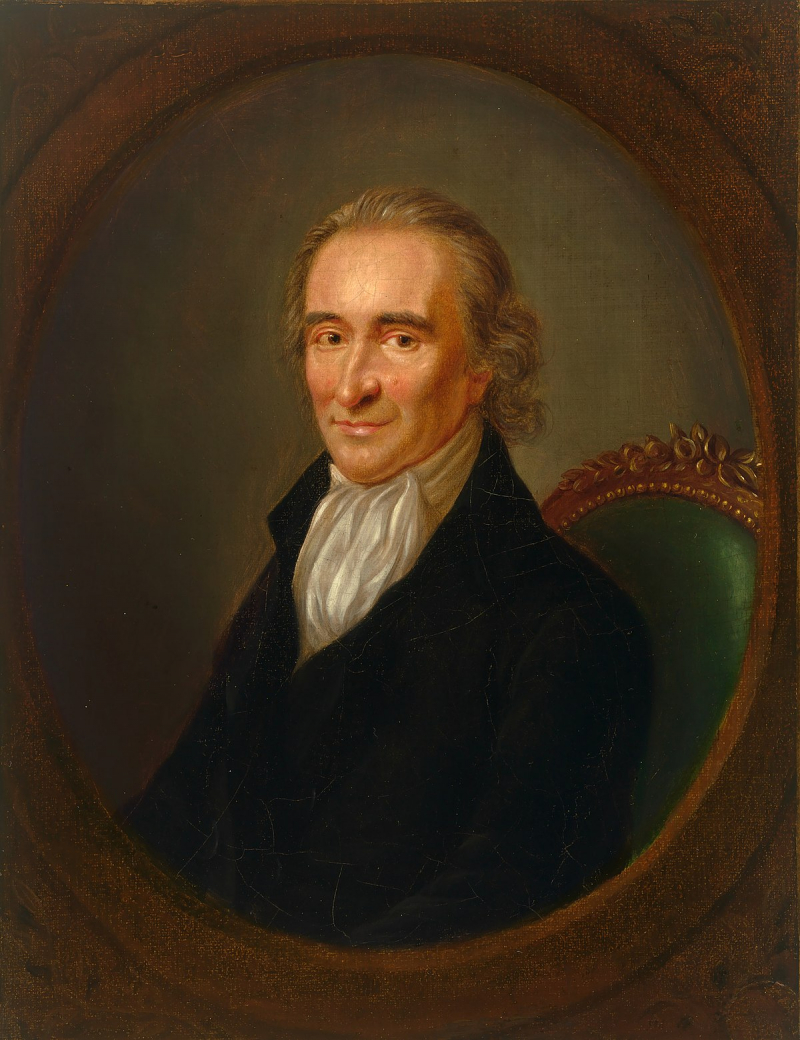
Wikipedia 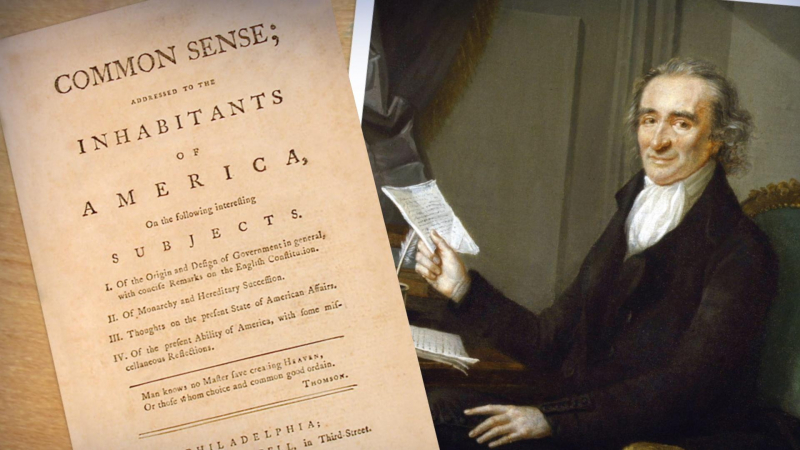
PBS LearningMedia -
Alexander Hamilton (1755-1804), a soldier, economist, and lawyer was a Founding Father. He was the first United States Secretary of the Treasury and was in charge of George Washington's economic policies. He built a national bank, and a debt-repayment mechanism, and negotiated trade agreements with the United Kingdom. During the American Revolution, he was George Washington's confidant. “The sacred rights of mankind are not to be rummaged for among old parchments or musty records. They are written, as with a sunbeam, in the whole volume of human nature, by the Hand of Divinity itself, and can never be erased or obscured by mortal power.” – Alexander Hamilton
Alexander Hamilton, born into obscurity in the British West Indies, rose to prominence during the Revolutionary War and became one of America's most significant Founding Fathers. He was an ardent supporter of a strong federal government and was instrumental in defending and ratifying the United States Constitution.
As the first Secretary of the United States Treasury, Hamilton laid the financial groundwork for the new nation, against stiff opposition from archrival Thomas Jefferson. The two men's differences would help shape the nation's first political party. Hamilton's controversial political style (and an embarrassing sex scandal) restricted his latter career chances, and he was assassinated in a duel in 1804 by Aaron Burr, another lifelong political opponent.Hamilton's father abandoned the family in 1766, and two years later his mother died. Hamilton, who was hired as a clerk in a trading company on St. Croix at the age of 11, rose to prominence after publishing an expressive letter detailing a hurricane that ravaged the island in 1772. Locals raised funds to send him to America to study, and he arrived in New York in late 1772, just as the colonies were preparing for war with Great Britain.
Hamilton became interested in the colonial cause while studying at King's College in New York (now Columbia University), publishing pamphlets such as "A Full Vindication of the Measures of Congress," in which he backed the First Continental Congress' plan to embargo trade with Britain. When the Revolutionary War broke out, he was commissioned to captain an artillery company in the Continental Army and fought valiantly in battles such as Trenton and Princeton. By 1777, he had piqued the interest of the army's commander-in-chief, General George Washington, who appointed him to his staff.
Hamilton's writing abilities and military acumen enabled him to prosper as Washington's aide-de-camp, and he established a reputation in Revolutionary-era society. He married Elizabeth Schuyler, the daughter of a wealthy and powerful New York landowner and military commander, in 1780. They had eight children, and she remained a crucial source of loyalty and stability for him throughout the many turbulent years that followed.
Hamilton resigned from Washington's staff in 1781 but returned to the army later that year when Washington assigned him a field command at the Battle of Yorktown. Hamilton performed admirably in that pivotal battle, commanding a successful assault that contributed to the capitulation of British General Lord Charles Cornwallis.Hamilton was appointed by George Washington in 1781 to command a light infantry battalion in Marquis de Lafayette's Division, and he helped lead the charge in the Conflict of Yorktown in Yorktown, Virginia, the war's final major land battle. The siege lasted from September 28 to October 19, 1781, with the French attacking Redoubt 9 and Hamilton attacking Redoubt 10 at the same time. British General Charles Cornwallis surrendered as a result of the two-pronged attack.
Following the war, Hamilton studied law, passed the New York bar, and established himself as an attorney in New York City. Hamilton was chosen as one of three delegates from New York to a federal conference in Philadelphia in 1787 to rewrite the Articles of Confederation. He famously delivered a six-hour lecture outlining his own idea for a highly centralized government, prompting accusations that he planned to establish a monarchy.
Though Hamilton had little impact on the Constitution itself, he was instrumental in its ratification. Hamilton, together with James Madison and John Jay, wrote a series of 85 essays defending the new Constitution to the American people. Hamilton wrote 51 of these Federalist Papers, which became his most well-known works.
Washington was unanimously elected the first President of the United States in 1789, and he appointed Hamilton as the first Secretary of the United States Treasury. Hamilton argued for the significance of a national banking system and the federal government's assumption of state debts in order to secure long-term financial stability for the new nation. Hamilton's financial policies were strongly opposed by Madison and Thomas Jefferson, then secretary of state, who believed they gave the federal government far too much authority.
The First Bank of the United States, founded in 1791 and modeled after the Bank of England, succeeded in fuelling economic expansion and marked the pinnacle of Hamilton's influence on the fledgling nation. Meanwhile, the debate over the balance of power between the federal government and the states raged on within Washington's cabinet. When war broke out between the United Kingdom and France in 1793, the schism between Hamilton (who preferred neutrality) and Jefferson (who wanted the United States to support France) had begun to establish the nation's first political parties, the Federalists and the Democratic-Republicans.
Hamilton's legacy rose to prominence centuries later with the premiere of the landmark musical Hamilton. The performance, composed and performed by Lin-Manuel Miranda, combined hip-hop and Broadway to provide a new perspective on the Founding Father's biography. It dominated the 2016 Tony Honors, taking home 11 awards. A video version of the musical will air on Disney+ in July 2020.
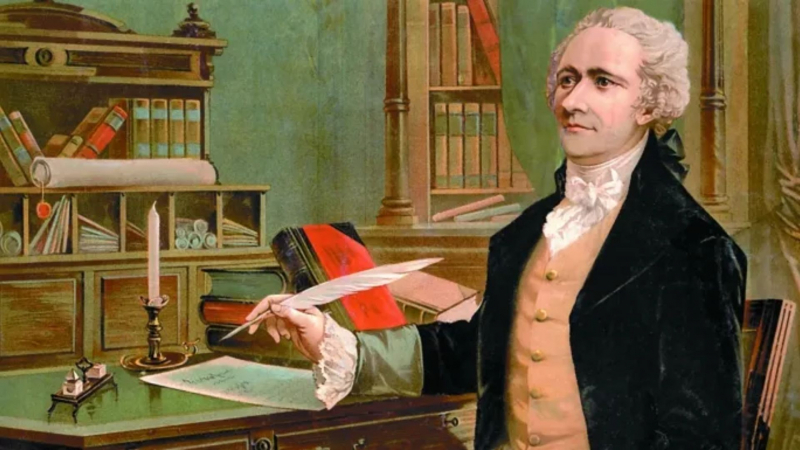
Buyenlarge/Getty Images 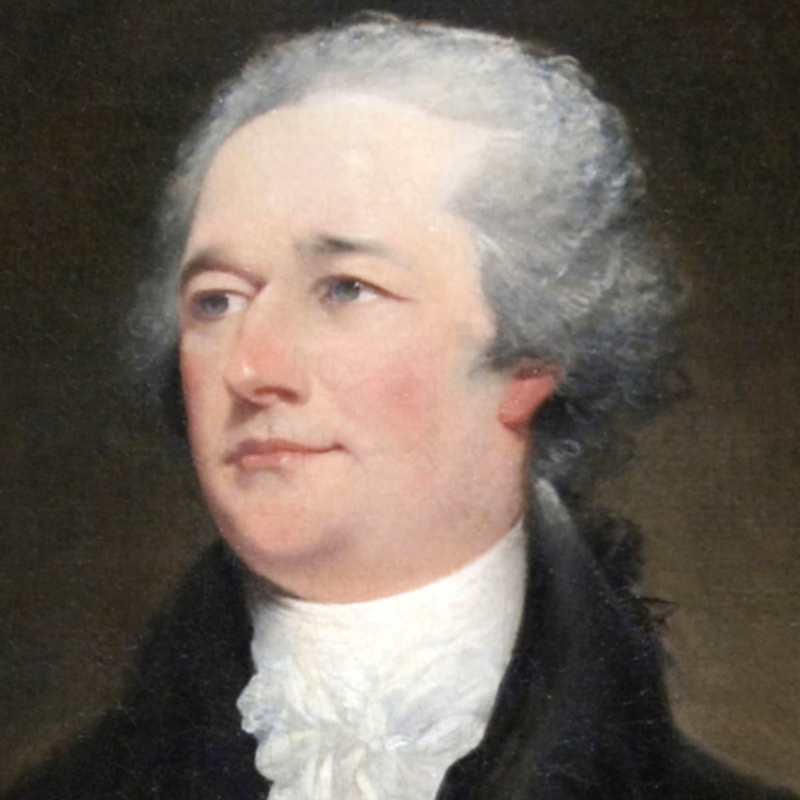
Nghiên cứu Quốc tế -
Thomas Jefferson (April 13, 1743 – July 4, 1826) was a key Founding Father of the United States, the author of the Declaration of Independence (1776), and the third President of the United States (1801-1809). Jefferson was a staunch Republican who advocated for liberty, democracy, and distributed power. In 1777, Jefferson also drafted the Statute for Religious Freedom, which was enacted by the state of Virginia in 1786. Jefferson was also a well-known polymath, with interests ranging from architecture to gardening, philosophy, literature, and education. Despite being a slave owner himself, Jefferson attempted to introduce legislation (1800) to abolish slavery in the Western areas. As President, he signed legislation prohibiting the entry of slaves into the United States (1807).
Jefferson was born in Shadwell, Goochland County, Virginia, to a wealthy family. Peter Jefferson, his father, was a land and slave owner in Virginia. When Jefferson's father died in 1745, he received 5,000 acres, which included Monticello. jefferson Thomas Jefferson was an avid learner as a child, often spending up to 15 hours a day studying. He was to have a lifetime love of reading. He possessed a sharp brain as well as a diverse set of interests. His interests included philosophy, architecture, and the natural sciences. He enrolled at the College of William & Mary in Williamsburg at the age of 16, and two years later graduated with honors. He became a lawyer after graduating from college and later served in the Virginia House of Burgesses. A Summary View of the Rights of British America was one of his early significant political essays (1774). This provided a thoughtful discussion of how America could reach an agreement with Britain. It was crucial in molding public opinion in the run-up to the American Revolution.
The American Declaration of Independence was drafted mostly by Thomas Jefferson. The act passed on July 4th, 1776, was a symbolic proclamation of the American Revolution's goals. Jefferson was dissatisfied that a reference to the evils of slavery had been deleted at the request of Southern delegates. Jefferson succeeded Benjamin Franklin as Minister to France from 1785 to 1789. Jefferson became involved in Paris society while in France. He was a well-known presenter who met many of the great minds of the day. Jefferson witnessed the social and political upheaval that led to the French Revolution. The French Assembly issued the Declaration of the Rights of Man and of the Citizen on August 26, 1789, which was heavily influenced by Jefferson's US Declaration of Independence. When Jefferson returned to America, he became George Washington's first Secretary of State. He began disputing the level of government spending with the Hamilton groups here. Jefferson was a supporter of limited government. He retired temporarily to Monticello at the end of his tenure in 1783, where he spent time in his gardens and with his family.
Jefferson ran for President in 1796, but was barely defeated by John Adams; yet, under the wording of the constitution, this was enough for him to become Vice President. Jefferson fought a tough campaign in the run-up to the next election in 1800. The Alien and Sedition Act of 1798, for instance, resulted in the imprisonment of numerous newspaper editors who supported Jefferson and were critical of the current government. However, because Jefferson was barely elected, he was able to encourage open and representative government. When he was elected, he extended a friendly hand to his erstwhile political adversaries. He also let the Sedition Act expire and advocated the presence of free speech in practice. Jefferson's presidency was dramatic, but more importantly, he presided over a period of relative stability and kept America out of battle.
The British-French conflicts that raged around Canada at the period threatened American neutrality. Through the Louisiana Purchase, which provided America with additional states to the west, Jefferson was able to double the size of the US in 1803. He also commissioned the Lewis and Clark Expedition, which traveled across America in search of exploration and goodwill with Native American populations.
Jefferson was able to retire from politics in 1808. In retirement, he spent much of his time at his beloved Monticello, as well as working on the University of Virginia's foundation. Jefferson possessed a wide range of abilities and interests. He was fascinated by both science and the arts. He was also interested in architecture and played a role in transferring the neo-palladian style from Britain to America. This architectural style was connected with republicanism and civic morality at the time.
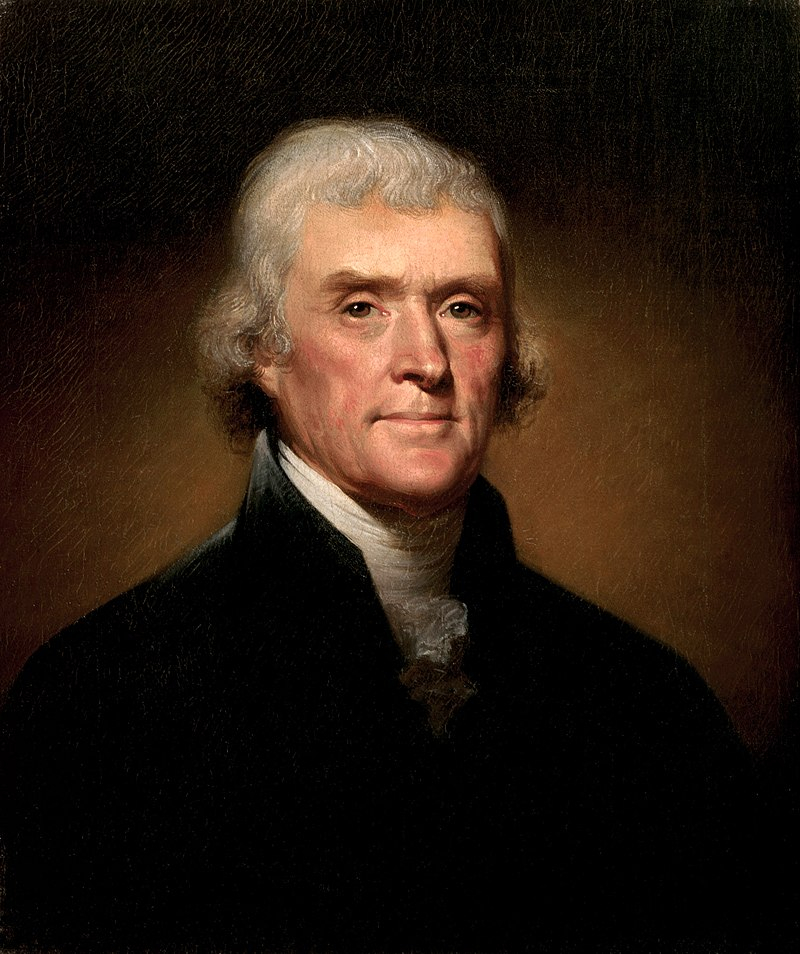
Wikipedia 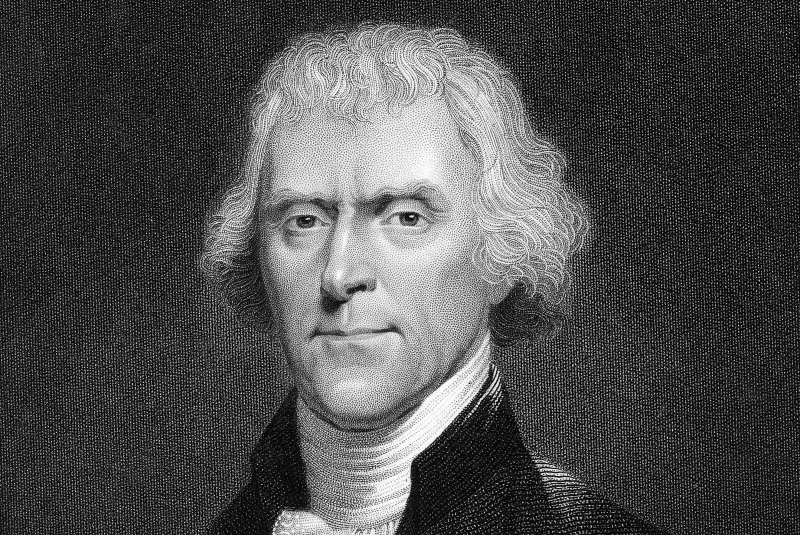
www.greelane.com -
William Clark (1774–1809) and Meriwether Lewis (1770-1838) In 1804, Lewis and Clark led an expedition that traveled from Pittsburgh, Pennsylvania, through the middle of the country (including the recently acquired Louisiana region), and then along the Pacific coast to the west coast of America. Thomas Jefferson ordered the voyage in order to determine the most viable path to the Pacific and, more crucially, to have the American government formally claim the entire landmass on behalf of the United States before competing European countries attempted to do the same. The mission also aimed to learn more about the continent's interior and, at Jefferson's request, improve ties with American Indian tribes. They came back to St. Louis after two years and informed the president of their findings.
William Clark and Meriwether Lewis are still remembered as one of the most well-known duos in American history. However, underlying the legend surrounding their 1804 - 1806 trip and the collaboration that led it, the two men whose names have been inextricably intertwined once again had a friendship. Despite coming from well-known Virginia families, Lewis and Clark did not meet until they were adults. In the 1770s, Clark's family which included his famous Revolutionary War commander brother, George Rogers Clark moved to Kentucky. Lewis and Clark finished their official studies and joined the military. They fought alongside General Anthony Wayne in the same battalion in 1795, where they grew close. Both earned a reputation for being effective commanders and seasoned outdoorsmen, albeit Clark was more skilled at surveying and water navigation than Lewis. Their shared connection to Thomas Jefferson helped them later on. Lewis was appointed as Jefferson's personal secretary after the president's inauguration in 1801. Jefferson approved of Lewis's selection of Clark as co-commander while the Corps of Discovery trip was being planned. Although Clark served as the official second in command, Lewis regarded Clark as his equal, and the two made all decisions together throughout the expedition.
The majority of the expedition's troops were recruited and trained by Clark, while Lewis oversaw the preparation of the expedition's supplies. The expedition left in May 1804, traveled up the Missouri River and camped in the Mandan Indian territory for the winter after five months. Lewis and Clark successfully traversed the Rocky and Bitterroot Mountains with the essential assistance of Native American guides and interpreters, the most prominent of whom was Sacagawea, a Shoshoni woman. They frequently had to trek on foot while utilizing horses they had acquired from indigenous as pack animals due to the difficult terrain. When the group arrived at the Columbia River's tributaries, they constructed boats that would take them to the Columbia River's mouth and the Pacific Ocean. While Clark directed physical operations, supervised physical activities, surveyed mountains and rivers, and attempted to determine navigable routes, Lewis spent a large portion of his time observing the natural world and caring for the men's health. After spending the winter of 1805–1806 in modern-day Oregon, the group set off on their return trip, splitting up along the route to investigate the Continental Divide and the Upper Missouri River. When Lewis and Clark reached St. Louis in September 1806, they got to work writing their diaries, which would help future explorers create a precise topographical map of North America.
The voyage turned out to be the pinnacle of their professional lives. In order to support Lewis while he drafted his documents, Jefferson appointed Lewis governor of the Louisiana Territory in 1807. Lewis had a history of depression and had mismanaged his finances, resulting in debt, which made him even more depressed and inclined to binge drink. Lewis, who was only 35 years old at the time, passed away from a gunshot wound while visiting an inn in central Tennessee in 1809. The majority of the available data supports the conclusion that Lewis committed suicide, despite some researchers' claims to the contrary. In 1807, Clark was appointed director of Indian affairs, and six years later he was chosen to lead the Missouri Territory. After Lewis passed away, Clark took over the responsibility of getting his journals ready for publication. He enlisted the help of banker Nicholas Biddle, who edited the writings for their printing in 1814. Biddle concentrated primarily on the expedition's geographic discoveries, overlooking many of Lewis's meticulous notes on flora and fauna.
Nevertheless, the journals' publication sparked interest in the West due to their descriptions of native tribes and natural resources, which proved to be very helpful to the geologists, surveyors, and anthropologists who followed Lewis and Clark.
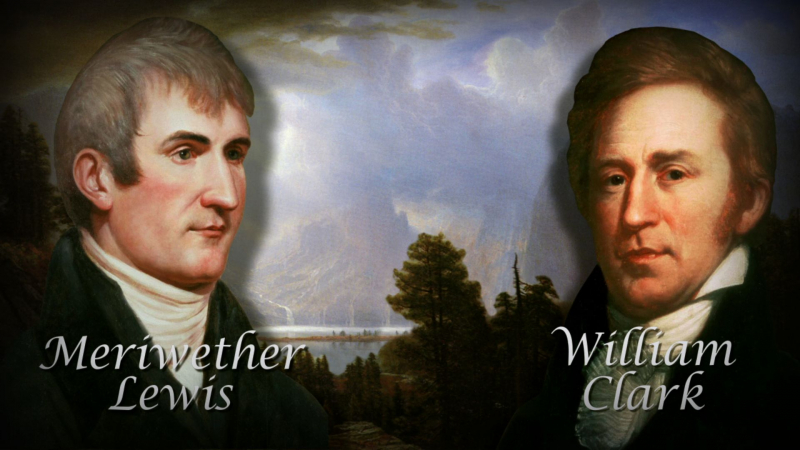
PBS LearningMedia 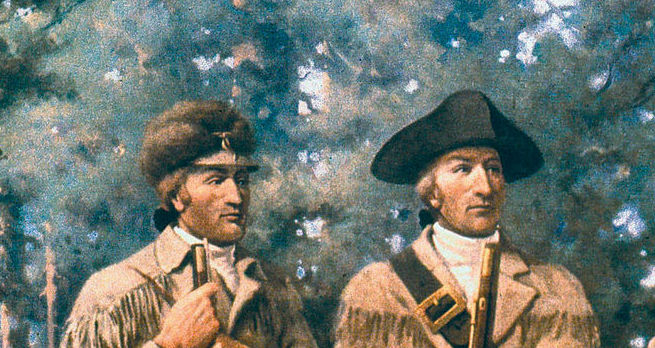
Philanthropy Daily -
John Adams (1735–1826) was a founding father, political philosopher, and the second president of the United States (1797-1801). Adams also practiced law and supported the right to an attorney and the presumption of innocence. He was one of the more conservative Founding Fathers, although he supported the American Revolution and worked to have Thomas Jefferson's draft of the Declaration of Independence approved by the Continental Congress. In addition, he served as the US's first vice president (1789–1797) and a foreign diplomat in the UK and the Netherlands.
Adams had favor with the British authorities in the Americas because of his defense of the British soldiers, but he grew increasingly concerned about the expansion of British misrule. The British Crown started paying the judiciary directly, as opposed to the colonial administration, in 1772. Adams believed that this directly posed a threat to judicial independence. Adams declared that the Boston Tea Party was the "grandest event" in the history of the colonial protest movement in 1773, fully endorsing the destruction of tea from the British East India Company.
Adams agreed to represent Massachusetts at the First Continental Congress after the British carried out the "Intolerable Acts" in retaliation for the Boston Tea Party. At the Continental Congress, Adams played a significant role in mediating a deal between moderates who sought to appease the British Crown and the radicals who wanted to proclaim independence. Adams secretly shifted toward yearning for total independence after the first American-British combat at the Battle of Lexington and Concord. He proposed George Washington as the Continental Army's Commander in Chief in 1775. He continued to advocate for reconciliation in public, but his preference for a total breakaway grew over time.
Adams made friends with Thomas Jefferson in 1776, and it was Adams who convinced Jefferson to write the Declaration of Independence. Adams refused, saying that it would be preferable for Jefferson to prepare the declaration as he is a Virginian, a great writer, and has few personal enemies. Initially, Jefferson wanted Adams to write the text. Adams assisted in the document's revision after Jefferson drafted the initial draft before it was presented to the Continental Congress.
Adams was the principal proponent of the Declaration of Independence when it was debated in Congress and overcame objections from conservative members like Dickinson. Later, Jefferson praised Adams, saying “the pillar of [the Declaration’s] support on the floor of Congress, [its] ablest advocate and defender against the multifarious assaults it encountered.”
American Independence was proclaimed on July 4, 1776. Adams detested slavery and was dedicated to its abolition, but he also saw that the moment wasn't right to pass legislation to remove it in order to maintain the support of the southern states for American independence.
Adams was a key figure in the government during the war, contributing to numerous committees and putting in up to eighteen-hour days. He had to labor even harder after American military failures, writing to army leaders to inquire about weapons and supplies and to urge the troops to uphold discipline.
Adams ran for president for the Federalist Party in 1797 because Washington did not want to serve a third term. It was a fiercely partisan election, with the Federalists accusing the Democratic-Republicans of supporting the violence and anarchy of the French Revolution and the Republicans accused the Federalists of being sympathetic to British-style monarchy and aristocracy. Thomas Jefferson was the Democratic-Republicans' leading candidate. Adams ran for the Federalists, but the group was divided since Thomas Pinckney of South Carolina was preferred by Alexander Hamilton to succeed Washington.
Adams fought against the Hamilton faction of his party even while serving as president. The conflict between the French and the British also involved the US. The Alien and Sedition Act (1798), which provided the government the authority to summarily remove persons accused of treason, was passed as a result of the political climate. Jefferson and the Republicans fiercely opposed it, claiming it was unconstitutional, and it was also an assault on the free press.
The French grew increasingly hostile toward the US envoys, drawing the US into a naval-like conflict. Adams strengthened the US fleet, and Congress granted permission to construct new ships. Adams rejected pressure to start a full-scale war, and at the conclusion of his administration, he dispatched a peace envoy to Paris, where after protracted discussions, the quasi-war was resolved. However, the Hamilton Federalists opposed his pleas for peace, and in the hotly contested 1800 election, Thomas Jefferson narrowly defeated him to win the Presidency.
He retired to his farm near Quincy after his election loss. After parting ways politically in 1812, Jefferson and Adams rekindled their close friendship and engaged in lengthy letters in which they also discussed politics.
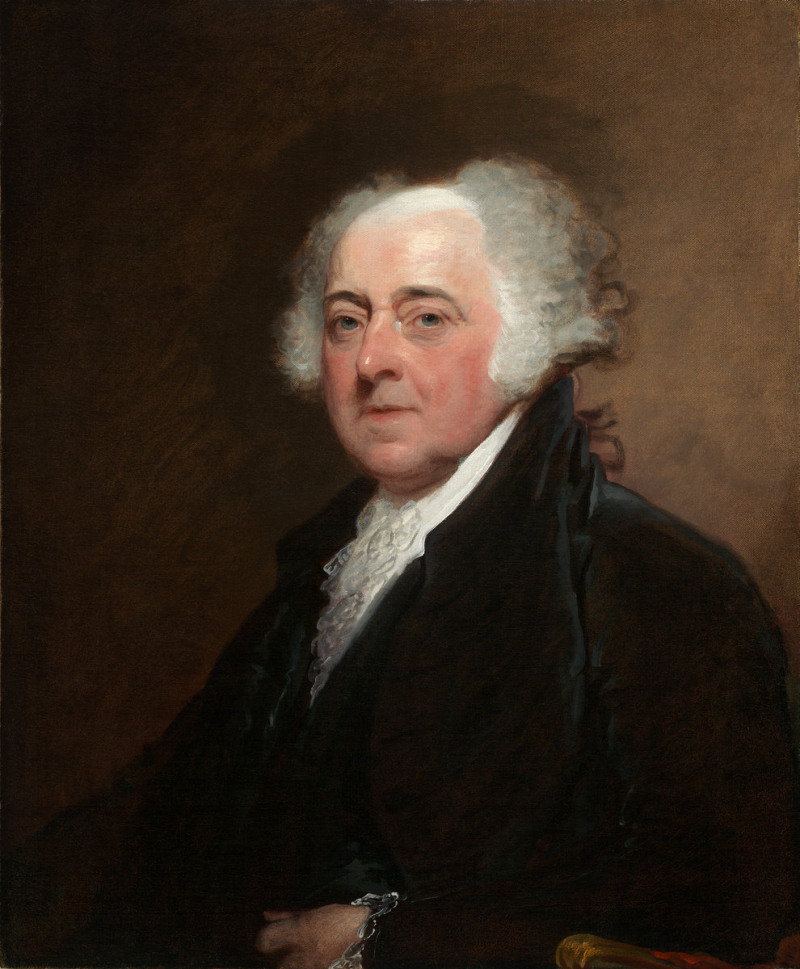
Wikipedia 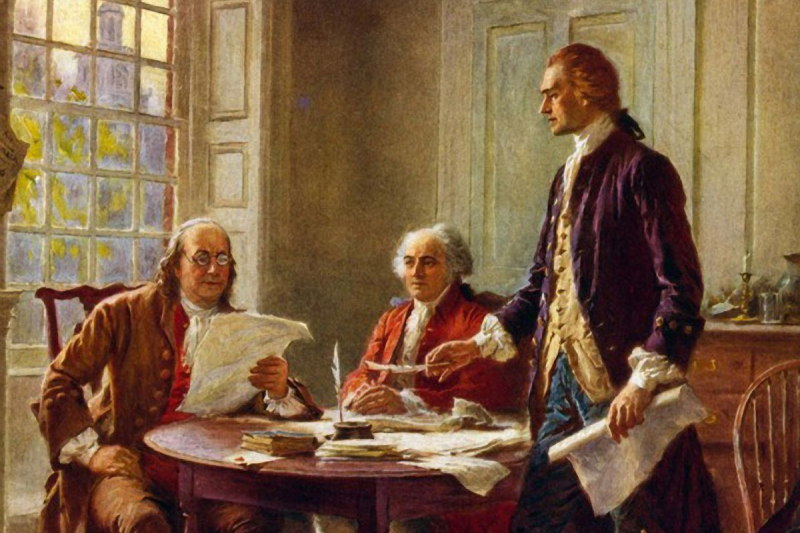
Redsvn.net -
The Federalist Papers, co-written by Alexander Hamilton, John Jay, and James Madison, who served as America's fourth president from 1809 to 1817, significantly aided in the passage of the Constitution. He was referred to as the "Father of the Constitution" in later years.
James Madison, a diminutive, aged man, appeared aged and worn during his inauguration; Washington Irving called him "just a withered little apple-John." But whatever Madison's charm flaws, Dolley, his wife, made up for them with her warmth and joy. She was Washington's talk of the town.
Madison, who was born in 1751, was raised in Orange County, Virginia, and went to Princeton University (then called the College of New Jersey). He was a leader in the Virginia Assembly, a history and government student, and a well-read lawyer who helped draft the Virginia Constitution in 1776. He also served in the Continental Congress.
The 36-year-old Madison actively participated in the debates when the participants in the Constitutional Convention met in Philadelphia.Madison, along with John Jay and Alexander Hamilton, wrote the Federalist essays, which were a significant factor in the approval of the Constitution. Madison objected when he was later referred to as the "Father of the Constitution," saying that the constitution was "the work of many heads and many hands" rather than "the offspring of a single brain."
He worked in Congress to draft the Bill of Rights and pass the first tax law. The Republican, or Jeffersonian, Party was born out of his leadership in opposition to Hamilton's financial policies, which he believed would unfairly award riches and influence to northern financiers.Madison protested to warring France and Britain that their seizure of American ships was against international law while serving as President Jefferson's secretary of state. John Randolph remarked angrily that the complaints were equivalent to "a penny pamphlet hurled against eight hundred ships of war."
Madison won the presidency in 1808 despite the unpopular Embargo Act of 1807, which did not force warring nations to modify their ways but did result in a slump in the United States. The Embargo Act had been repealed before he was elected.During Madison's first year in office, the United States barred trade with both Britain and France; however, in May 1810, Congress legalized trade with both, authorizing the President to refuse trade with the other nation if either would adopt America's notion of neutral rights.
Napoleon pretended to agree. Madison declared non-intercourse with the United Kingdom late in 1810. The "War Hawks," a young group in Congress that included Henry Clay and John C. Calhoun, lobbied the President for a more aggressive approach.
The British impressment of American seamen and the seizure of cargoes forced Madison to cave. On June 1, 1812, he requested that Congress declare war.The nascent nation was unprepared to fight, and its armies were routed. When the British arrived in Washington, they set fire to the White House and the Capitol.
However, a few noteworthy naval and military successes, capped by Gen. Andrew Jackson's victory at New Orleans, persuaded Americans that the War of 1812 had been a resounding success. As a result, there was an increase in nationalism. The New England Federalists who had opposed the war and even discussed secession were so overwhelmingly discredited that Federalism as a national party vanished.Madison spoke out against the disruptive states' rights pressures that threatened to dissolve the Federal Union in his retirement at Montpelier, his mansion in Orange County, Virginia. "The advise nearest to my heart and deepest in my principles is that the Union of the States is cherished and sustained," he said in a note opened after his death in 1836.
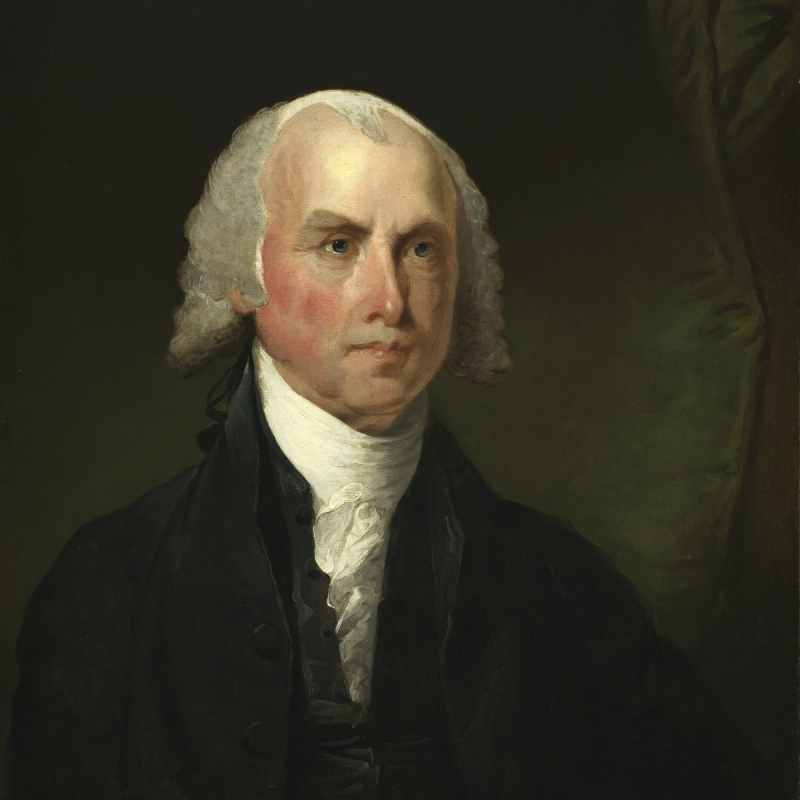
www.history.com 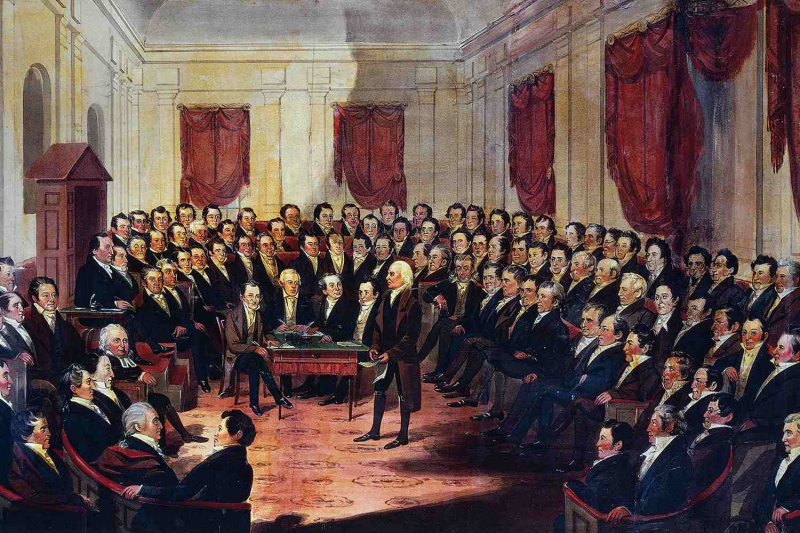
ThoughtCo -
John Marshall served as the fourth Chief Justice of the United States Supreme Court (1801-35). Marshall maintained the Supreme Court's authority to judge the validity of the nation's laws in Marbury v. Madison (1803) and other major cases and transformed the judicial branch into a powerful force in the U.S. government.
After leaving the army in 1780, Marshall attended William and Mary Law School, where he met his future wife, Mary Willis (Polly) Ambler, who lived in neighboring Yorktown. He was quickly licensed to the Virginia bar and established his own law firm, which grew as a result of his success defending clients against British creditors. He also began his political career, serving in the Virginia state legislature and working tirelessly to persuade Virginia to vote for ratification of the Constitution in 1789.
Despite turning down many government posts to stay in Richmond during Washington's two terms as president, Marshall developed as a powerful champion for the Federalist Party. The Federalists advocated for a strong national government, in contrast to the Democratic-Republican Party, which was led by Thomas Jefferson, a fellow Virginian, and Marshall's second cousin.
In 1797, as one of three US envoys tasked with resolving a developing crisis between the US and France, Marshall refused to pay the bribes demanded by French officials in order to talk. When President John Adams later disclosed messages from French officials, the ensuing XYZ Affair resulted in the Quasi-War with France.
Despite turning down many government posts to stay in Richmond during Washington's two terms as president, Marshall developed as a powerful champion for the Federalist Party. The Federalists advocated for a strong national government, in contrast to the Democratic-Republican Party, which was led by Thomas Jefferson, a fellow Virginian, and Marshall's second cousin.
In 1797, as one of three US envoys tasked with resolving a developing crisis between the US and France, Marshall refused to pay the bribes demanded by French officials in order to talk. When President John Adams later disclosed messages from French officials, the ensuing XYZ Affair resulted in the Quasi-War with France.The Supreme Court had little jurisdiction in comparison to the president and Congress at the time; it didn't even have its own facility, instead meeting in a vacant committee chamber at the Capitol. However, during his 34-year tenure as Chief Justice, Marshall transformed the judicial branch into a force in governance equal to the president (executive branch) and Congress (legislative branch).
As a staunch Federalist, Marshall construed the US Constitution in a way that increased the federal government's power over the states. The Court's landmark decision in McCulloch v. Maryland (1819), which Marshall also wrote, established the idea that the Constitution gave Congress implied powers beyond those expressly enumerated in the document, including the power to establish a national bank that could not be taxed by individual states. In Cohens v. Virginia (1921), the Court affirmed its own right to review state court verdicts, so establishing federal supremacy over state courts.
Though the Federalist Party had completely disbanded by 1815, Marshall remained an advocate of the concept of a strong national government and a suitable opponent for Democratic-Republican political adversaries ranging from Jefferson to Andrew Jackson. During Marshall's tenure, the Supreme Court issued over 1,000 rulings, with Marshall writing more than half of them. Despite the fact that every justice selected during Marshall's term was appointed by a president who disagreed with Marshall's ideas, nearly all were unanimous, a credit to Marshall's strong leadership and ability to generate consensus
Marshall served on the Supreme Court during six presidential administrations, until his death on July 6, 1835, in Philadelphia, at the age of 79. Marshall, often regarded as the most influential jurist in American history, established the groundwork for the Supreme Court's role as the ultimate interpreter of the Constitution and prepared the way for the federal government's expansion in the nineteenth and twentieth centuries.
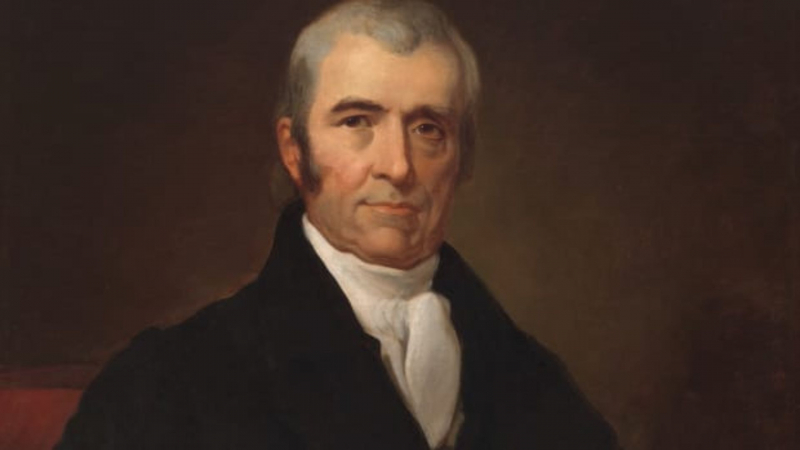
www.history.com 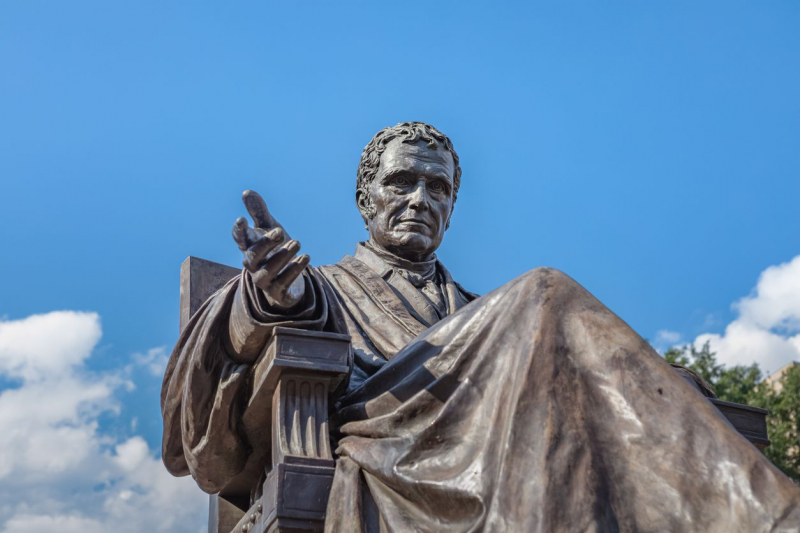
Dallas Morning News -
Tecumseh was a Shawnee warrior and leader from the United States. He was successful in forming a large Confederacy of Indian tribes. He urged native American Indians to band together as one power in order to negotiate better terms with European Americans. Between 1810 and 1813, he fought the United States government but was mostly unsuccessful in getting the government to cancel any land accords he thought were unfair. His pan-Native American alliance disintegrated after his death, and the US government continued to claim Indian areas in the northeast. The Native Americans moved west. However, Tecumseh was crucial in developing a sense of Native American identity that extended beyond tribal rivalry. He rose to fame as a folk hero in Native American history and significantly influenced the mindset of Native Americans in the ensuing decades.
Shawnee War Chief Tecumseh was a charismatic leader, orator, and respected war chief of the Shawnee Indians of Ohio. His concept of a Confederacy of Indians standing united in the face of expropriation of their lands and traditions was critical in British North American defense against American forces.
He was born in a Shawnee hamlet close to Springfield, Ohio. His father was murdered in a battle between the Virginia militia and the Shawnee in 1774, which is seen as significant in Tecumseh's attitude toward the militia and white settlers. He established himself as a great warrior and commander at a young age and rose to become chief of the Shawnee tribe. As the flow of settlers pushed his people further west, his sympathy for them turned into rage, driving him to assemble a band of warriors and launch raids against the settlers.
Together with his brother Tenskwatawa, who became known as The Prophet due to his visions of the afterlife, they established Prophetstown on the Tippecanoe River in Indiana. The brothers urged the Shawnee and all other visiting tribes to plow their land, avoid adopting white settlers' customs, and refrain from drinking alcohol.
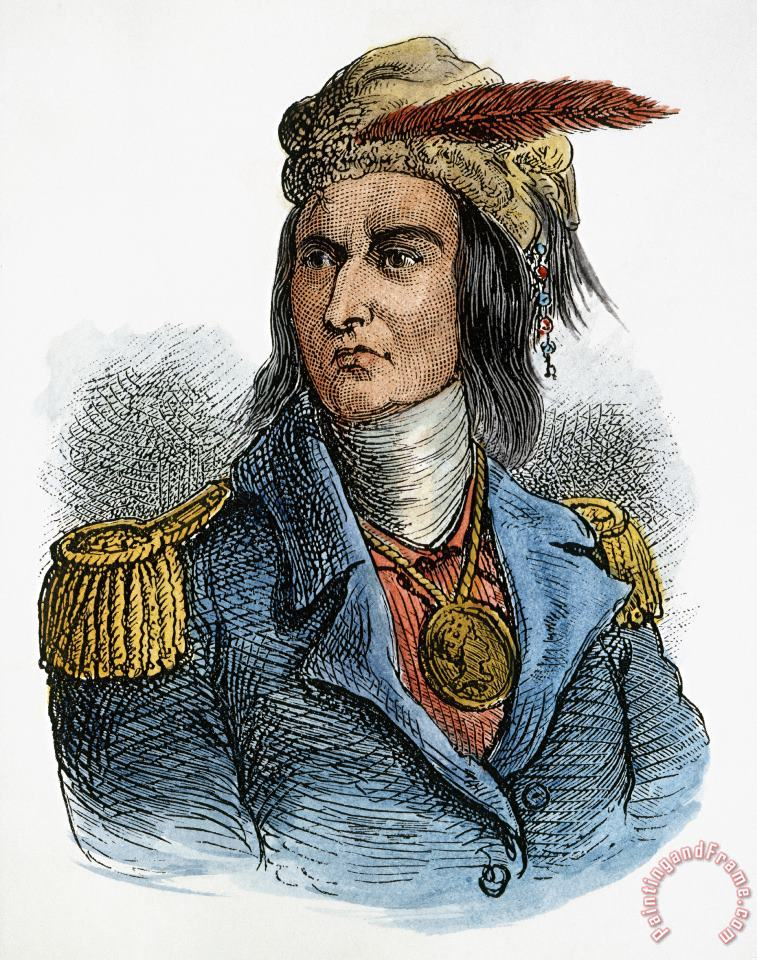
Art Prints for Sale 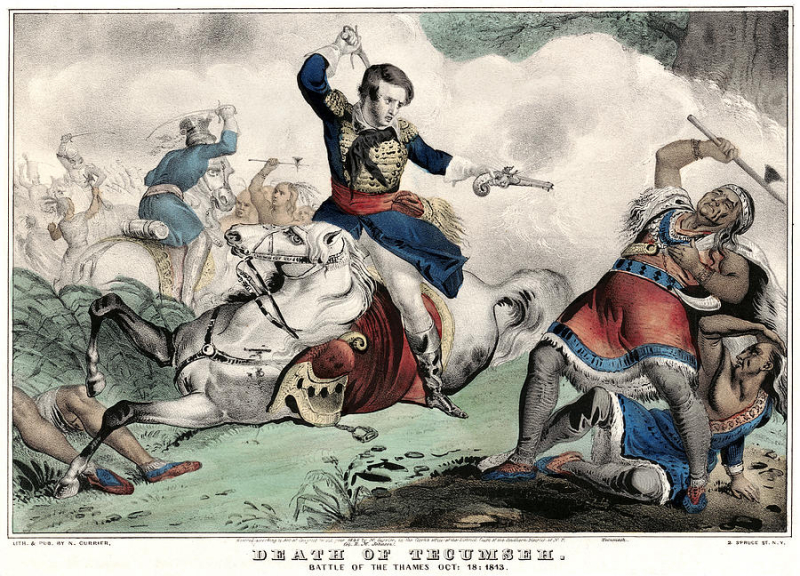
Death of Tecumseh 1768-1813 by Currier and Ives - Fine Art America -
David Crockett (1786 – 1836) American frontiersman, soldier, and politician. He was raised in Tennessee, where he later served as a representative in the House of Representatives and as a state legislator.
He argued that it was wrong to drive Native Americans out and was one of the few to vote against Andrew Jackson's Indian Removal Act of 1831. After losing his seat, he relocated to Texas. He enlisted in the Texas militia in 1836 and engaged the Mexican Army in battle.
Despite Crockett's passing during the Alamo siege, the Texas Revolution finally resulted in Texas's separation from Mexico and annexation by the US. David Crocket chronicled his life and his experiences on the American frontier in his autobiography.
Crockett's death at the Battle of the Alamo enhanced his heroism and secured his legendary position.
In 1954, Walt Disney produced Davy Crockett, a television series based on Crockett's biography, starring Fess Parker as Crockett. The series popularized the tune "The Ballad of Davy Crockett" by George Bruns and Thomas W. Blackburn, as well as the picture of a patriotic Crockett brandishing a long rifle while dressed in frontier garb and a coonskin cap.
Crockett's likeness and escapades were immortalized in plays, novels, comic books, and films throughout the twentieth century and beyond, including the 1960 film The Alamo, starring John Wayne as Davy Crockett.
Davy Crockett National Forest in Texas, David Crockett State Park in Tennessee, and the Davy Crockett Nuke, a nuclear weapons system developed by the United States Army during the Cold War, are all named after him.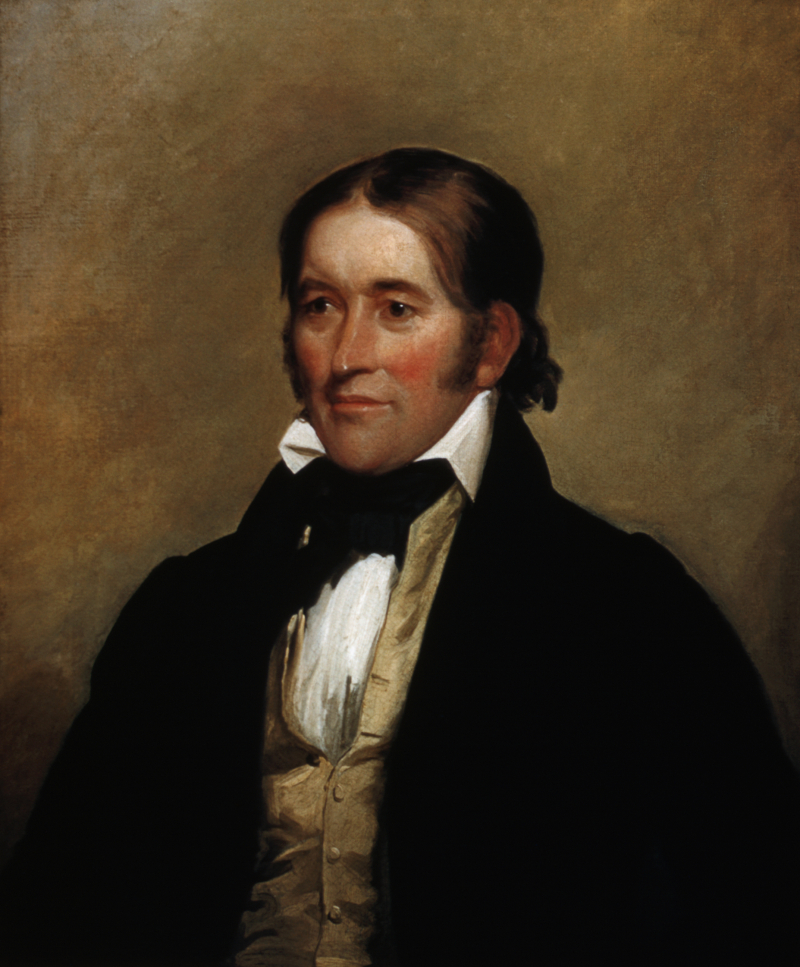
Wikipedia 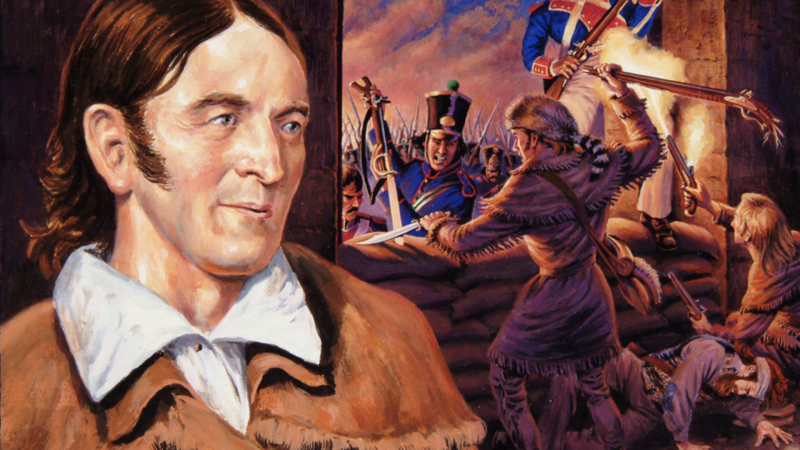
Medium -
One of the richest Americans of the 19th century was self-made multimillionaire Cornelius Vanderbilt (1794–1877), a railroad and shipping magnate. He used to transport merchandise between Staten Island, New York, where they lived, and Manhattan on a boat that his father ran as a little boy.
In the late 1820s, Vanderbilt, who had previously served as a steamship captain, decided to go into business for himself. He eventually rose to the position of one of the biggest steamship owners in the nation. The Commodore, as he was known to the public, developed a reputation for being cutthroat and highly competitive. He moved his attention to the railroad sector in the 1860s, where he created another empire and contributed to the improvement of railroad transportation. Vanderbilt was valued at more than $100 million at the time of his death.
Cornelius Vanderbilt made his fortune in the shipping industry before investing in railroads. In 1817, Vanderbilt began working as a ferry captain for Thomas Gibbons, a wealthy businessman who owned a commercial steamboat service that ran between New Jersey and New York.
The work allowed Vanderbilt to learn about the developing steamship business. He went into business on his own in the late 1820s, building steamships and operating ferry services around the New York region. He became a dominant force in the industry by engaging in severe fare wars with his competitors. He was astute and combative. His opponents paid him large sums not to compete with them in some circumstances.Vanderbilt built a substantial brick mansion for his family at 10 Washington Place in Manhattan's current Greenwich Village district in the 1840s. Despite his expanding fortune, Vanderbilt was met with hostility by the city's elite, who saw him as harsh and uncultured.
During the California Gold Rush in the early 1850s, before transcontinental railroads, Vanderbilt started a steamship service that transported prospectors from New York to San Francisco through Nicaragua. His approach was faster than an established route over Panama and considerably faster than the other option, which would take months across Cape Horn at the southern tip of South America. Vanderbilt's new line was an instant hit, making more than $1 million each year (about $26 million in today's money).He was infamously involved in the Erie Railroad War of 1868, when he competed for financial control of the Erie Railroad with Wall Street speculators Jim Fisk and Jay Gould. Daniel Drew was in charge of the Erie, and he worked with Vanderbilt to purchase up the majority of the railroad's stock. In response, Gould and Fisk issued more diluted shares, which Vanderbilt proceeded to purchase. The conflict between the robber barons was celebrated in the era's newspapers. The Erie Railroad War came to an unusual end when Gould and Fisk won complete control of the railroad, forcing Drew to resign while repaying Vanderbilt for his diluted equities.
Undaunted, Vanderbilt moved on to other projects, including the construction of Manhattan's Grand Central Depot, which opened in 1871. The station was subsequently demolished and replaced by the current Grand Central Terminal, which opened in 1913.
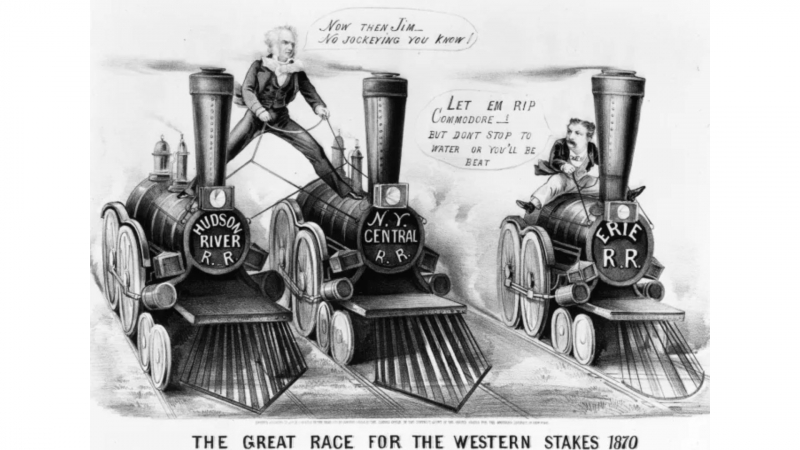
American industrialist Cornelius Vanderbilt (1794 - 1877) standing astride two railroads competing with James Fisk (1835 - 1872) for control of the Erie Railroad. - MPI/Getty Images 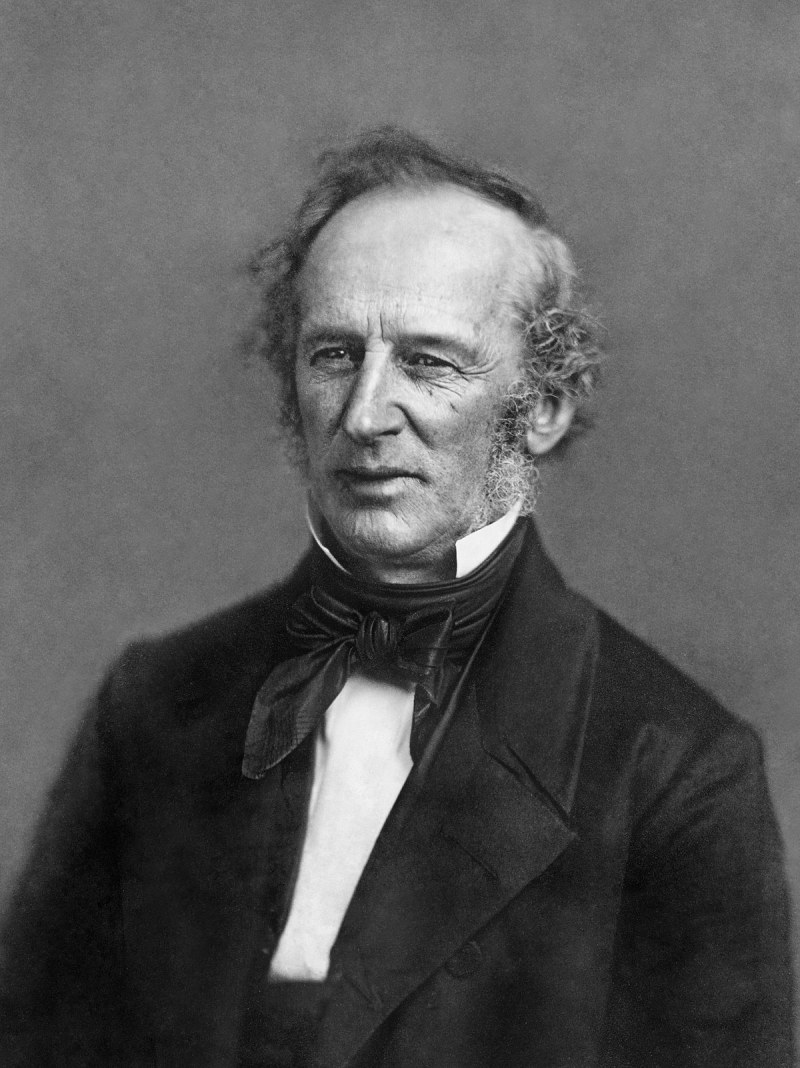
Wikipedia -
Abraham Lincoln (1809-1865) served as the 16th President of the United States from 1861 to 1865. He led the United States throughout the American Civil War, in which the southern states sought to secede from the union in order to protect their right to tolerate slavery. “A house divided against itself cannot stand,” he famously said. Lincoln led the North to triumph, saving the Union and ending slavery. His speeches, notably the Gettysburg Address, have defined what it is to be an American.
Although Lincoln lost the Senate election in 1858, his debate talents and oratory propelled him to prominence within the Republican Party. On the 27th of February, 1860. Lincoln was also invited to speak at the Cooper Union in New York. Many in the audience believed Lincoln's appearance was odd, if not ugly, on the East Coast, but his pleas for moral clarity on the wrongness of slavery struck a connection with his East Coast audience.
Because of his notoriety on the campaign trail and speeches on the East Coast, he was put forward as a candidate for the Republican candidacy for President in 1860. Lincoln was considered an outsider because he lacked the expertise of other prominent candidates such as Steward, Bates, and Chase. Still, after finishing second on the first ballot, he was unexpectedly selected. Lincoln was elected the first Republican President of the United States after a hard-fought, controversial campaign in 1860. The North and West of the country overwhelmingly supported Lincoln. The South strongly opposed Lincoln's stance on slavery.
The election of Abraham Lincoln as President in 1861 triggered the South's secession from the North. For many years, Southern independence sentiment had been rising, and the election of a president opposed to slavery was the final straw. However, Lincoln was adamantly opposed to the South's secession, which resulted in the American Civil War, with Lincoln determined to preserve the Union. Many people were startled when Lincoln appointed the top adversaries from the 1860 Republican campaign to his cabinet. It proved Lincoln's openness and capacity to collaborate with persons who held opposing political and personal views. This contributed to the Republican Party's unity.
The Civil War was significantly more expensive than many people anticipated, and Lincoln appeared to be losing public support at times. Lincoln's calm leadership and willingness to work with unionist Democrats, on the other hand, kept the country together. Lincoln directed many areas of the war's military operations and appointed General Ulysses S Grant to head the northern armies.
Initially, the war was fought primarily over the secession of southern states and the survival of the Union, but as the conflict advanced, Lincoln increasingly prioritized the abolition of slavery. Lincoln issued the Emancipation Proclamation on September 22, 1862, declaring the freedom of slaves within the Confederacy. “… all persons held as slaves within any State or designated part of a State, the people whereof shall then be in rebellion against the United States, shall be then, thenceforward, and forever free” (Emancipation Proclamation). On January 1, 1863, the Proclamation went into effect. Many black regiments were established toward the end of the year to aid the Union army.
Following the Civil War, Lincoln attempted to unify the country by giving a large settlement to the south. Lincoln said when asked how he planned to deal with the southern states. “Let ’em up easy.” More radical forces opposed Lincoln, arguing that greater activism in the south was needed to establish civil rights for freed slaves. On January 31, 1865, Lincoln aided in the passage of a bill to abolish slavery through Congress. On December 6, 1865, the Thirteenth Amendment to the United States Constitution was ratified.
Some northern abolitionists and Republicans wished Lincoln would go much further and institute full racial equality in education and voting rights. Lincoln was unwilling to do so (it was a minority political viewpoint at the time). Frederick Douglass, a renowned black activist (who had escaped from slavery), didn't always agree with Lincoln's beliefs, but after meeting Lincoln, he spoke well of him. “He treated me as a man; he did not let me feel for a moment that there was any difference in the color of our skins! The President is a most remarkable man. I am satisfied now that he is doing all that circumstances will permit him to do.”
Lincoln is largely regarded as one of the most influential and significant presidents in American history. Lincoln was regarded as embodying the virtues of honesty and integrity, in addition to rescuing the Union and advancing Republican ideas.
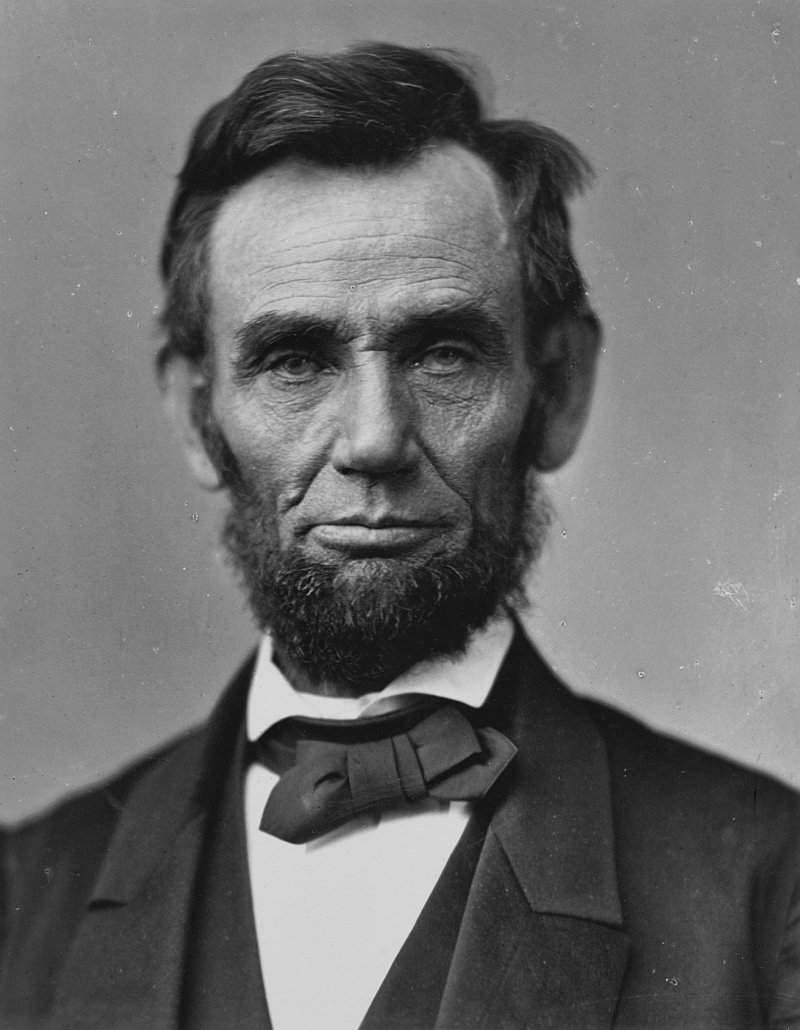
Wikipedia 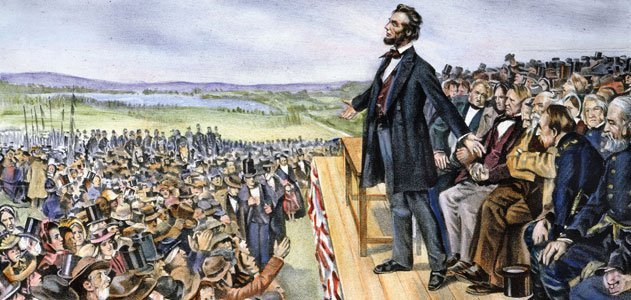
Smithsonian Magazine -
John Charles Frémont, known as "The Great Pathfinder," had a significantly more successful career before the Civil War than during it. Prior to the conflict, Frémont created a reputation for himself by heading multiple trips into the west to investigate and study the regions for future growth. He commissioned a second lieutenant in the Corps of Topographical Engineers in July 1838, and he led four significant journeys into the west to survey and investigate the territories. During the Mexican-American War, Frémont led the California Battalion to conquer Santa Barbara, the Presidio, and a portion of Los Angeles. He also signed the Treaty of Cahuenga, which effectively ended the conflict in California. Following the war, Frémont was appointed military governor of California, but when he refused to relinquish the position, he was court-martialed and resigned from the military on March 15, 1848. Frémont was a California senator from 1850 to 1851, and he ran unsuccessfully for President of the United States in 1856 as the first Republican Party candidate.
On May 15, 1861, at the start of the Civil War, President Abraham Lincoln made Frémont a major general and gave him command of the Department of the West. He attempted to officially bring Missouri into the Union cause, but his position was terminated when Lincoln believed that his activities might force Missouri to join the Confederacy. He was transferred to Virginia and encountered Confederate General Thomas "Stonewall" Jackson at the Battle of Cross Keys in June 1862. Frémont was unable to annihilate Jackson's army, allowing Jackson to flee. Following the battle, Frémont's corps was placed under the leadership of General John Pope, whom Frémont despised. He was removed from command at his own request and never obtained another command.
Frémont was the territorial governor of Arizona from 1878 until 1887 after the war.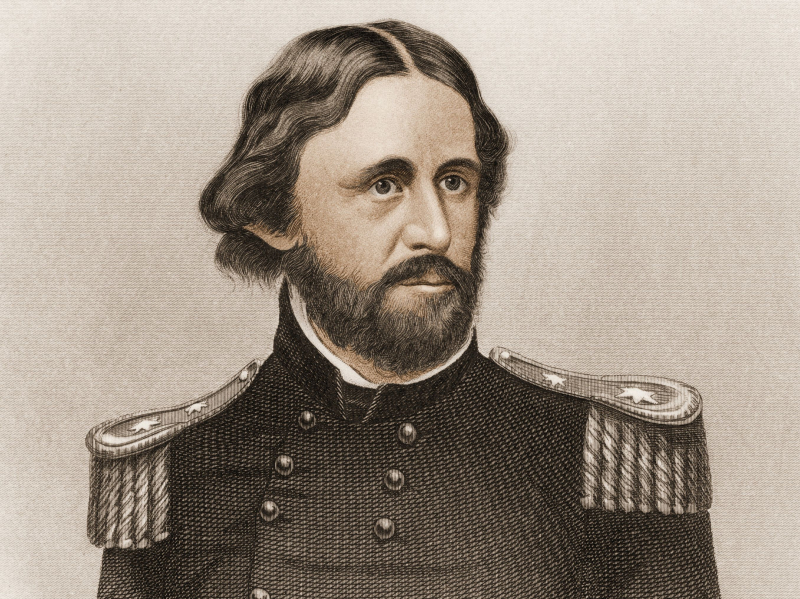
ThoughtCo 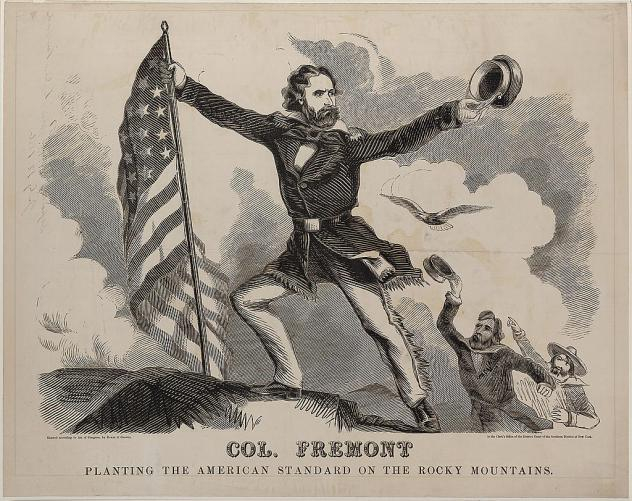
Nevada Public Radio -
Scottish-born Andrew Carnegie (1835-1919) was an American industrialist who made a fortune in the steel industry before becoming a prominent philanthropist. Carnegie began his career as a child worker in a Pittsburgh cotton industry before advancing to the position of division superintendent of the Pennsylvania Railroad in 1859.
While working for the railroad, he invested in different projects, including iron and oil companies, and by the time he was in his early 30s, he had amassed his first fortune. He entered the steel business in the early 1870s and became a dominant force in the industry during the next two decades. In 1901, he sold the Carnegie Steel Company for $480 million to banker John Pierpont Morgan. Carnegie subsequently turned his attention to philanthropy, eventually donating more than $350 million.
Carnegie co-founded his first steel company near Pittsburgh in the early 1870s. Over the next two decades, he built a steel empire by owning plants, raw materials, and transportation infrastructure involved in steel production, increasing revenues and eliminating inefficiencies. His principal holdings were combined in 1892 to become Carnegie Steel Company.
The steel tycoon saw himself as a defender of the working man, but his reputation was tainted by the Homestead Strike in 1892 at his Homestead, Pennsylvania, steel factory. When union members protested wage cuts, Carnegie Steel general manager Henry Clay Frick (1848-1919), intent to dissolve the union, shut them out of the plant.During the strike, Andrew Carnegie was on vacation in Scotland, but he supported Frick, who ordered 300 Pinkerton armed guards to safeguard the facility. At least ten men were killed in a brutal clash between striking workers and Pinkertons. The town was then taken over by the state militia, union leaders were jailed, and Frick hired replacement workers for the facility. The strike concluded with the union's loss after five months. Furthermore, for the next four decades, the labor movement in Pittsburgh-area steel factories was devastated.
In 1901, banker John Pierpont Morgan (1837-1913) paid $480 million for Carnegie Steel, making Andrew Carnegie one of the world's richest men. Morgan joined Carnegie Steel with a number of other steel companies the same year to become U.S. Steel, the world's first billion-dollar corporation.
After selling his steel company, Carnegie, who stood 5'3", resigned from business and devoted himself entirely to philanthropy. He wrote an essay called "The Gospel of Wealth" in 1889, in which he asserted that the wealthy have a "moral imperative to share [their money] in ways that promote the well and happiness of the ordinary man." "The man who dies so affluent dies shamed," Carnegie added.
Carnegie eventually handed away $350 million (the equivalent of billions in today's dollars), the majority of his fortune. Among his philanthropic activities, he funded the establishment of over 2,500 public libraries around the world, donated over 7,600 organs to churches around the world, and endowed organizations (many of which are still in operation today) dedicated to research in science, education, world peace, and other causes.
Among his contributions were the $1.1 million needed for the site and building of Carnegie Hall, the famed New York City concert facility that debuted in 1891. His financial contributions helped to establish the Carnegie Institution for Science, Carnegie Mellon University, and the Carnegie Foundation. He was the largest individual investment in public libraries in American history, and he was a book enthusiast.
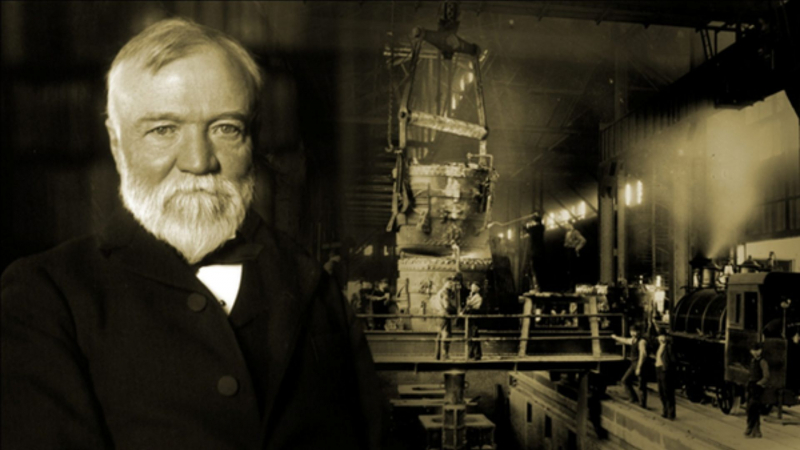
CafeBiz 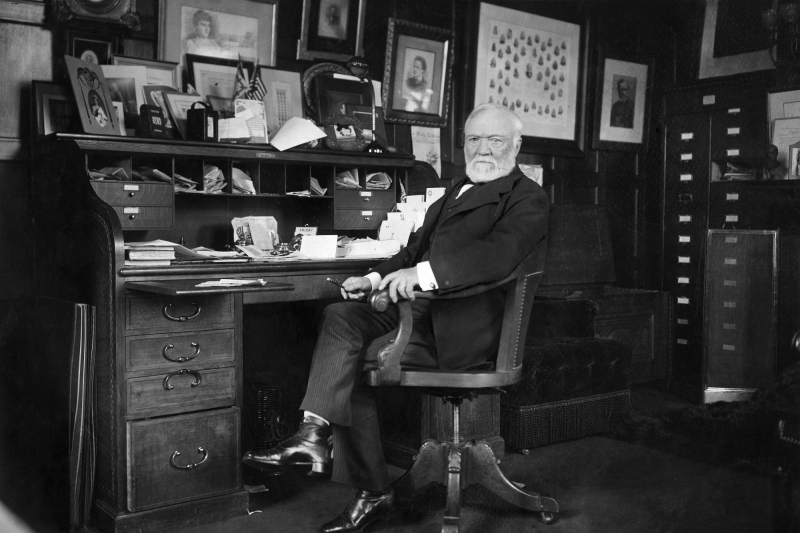
Vietnam Business Insider -
J.P. (John Pierpont) Morgan (1837-1913), one of the most prominent financiers of his time, sponsored railroads and helped form U.S. Steel, General Electric, and other large enterprises. In the late 1850s, he followed his affluent father into the banking business, and in 1871 he formed a partnership with Philadelphia financier Anthony Drexel. In 1895, their firm was renamed J.P. Morgan & Company, the forerunner of today's banking behemoth JPMorgan Chase. Morgan utilized his clout to assist stabilize American financial markets during multiple economic downturns, including the 1907 panic. However, he was accused of wielding too much power and of manipulating the nation's financial system for his own gain. The Gilded Age tycoon spent a large chunk oSaveCancelf his fortune amassing a magnificent art collection.
Morgan was heavily involved in reorganizing and consolidating a number of financially troubled railroads during the late nineteenth century, a period when the United States railroad industry experienced rapid overexpansion and heated competition (the nation's first transcontinental rail line was completed in 1869). He obtained control of major amounts of these railways' stock in the process, eventually controlling an estimated one-sixth of America's rail networks. Titanic, owned by White Star, an IMM company, sank on her maiden voyage after colliding with an iceberg. Morgan, who had witnessed the ship's christening in 1911, had been scheduled to go on the fateful April 1912 journey but had to cancel.
Because the United States did not have a central bank during Morgan's time, he utilized his power to help save the country from calamity during many economic crises. Morgan led a banking syndicate that loaned the federal government more than $60 million in 1895, helping to save America's gold standard. During the 1907 financial crisis, Morgan convened a gathering of the country's leading bankers at his New York City home and persuaded them to bail out various failing financial firms in order to calm the markets.
Morgan was initially lauded for leading Wall Street out of the 1907 financial crisis; however, in the years that followed, the portly banker with the handlebar mustache and gruff demeanor faced mounting criticism from muckraking journalists, progressive politicians, and others that he wielded too much power and could manipulate the financial system for his own gain. Morgan was called to testify before a congressional committee chaired by U.S. Representative Arsene Pujo (1861-1939) of Louisiana in 1912, which was looking into the existence of a "money trust," a small cabal of elite Wall Street financiers, including Morgan, who allegedly colluded to control American banking and industry. The Pujo Committee hearings aided in the establishment of the Federal Reserve System in December 1913, as well as the passage of the Clayton Antitrust Act in 1914.
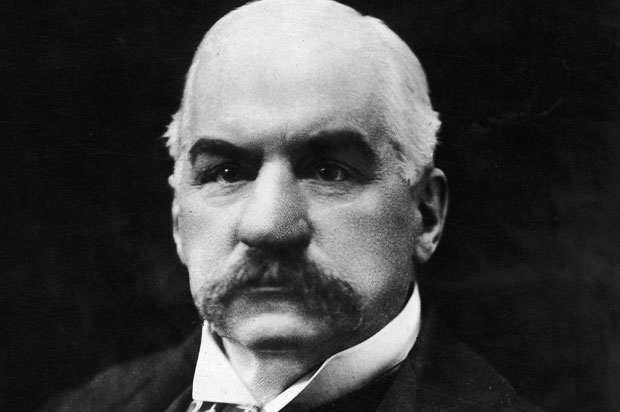
Famous Entrepreneurs jpmorgan -
After beginning his life in poor circumstances, John Rockefeller rose to control the booming petroleum industry by the age of 40. He became the wealthiest man of his day, and he has a strong claim to be the wealthiest self-made individual who ever lived. Rockefeller's net worth peaked at nearly 1.5 percent of the country's entire yearly economic output, the equivalent of about $280 billion today, or roughly three times Bill Gates' wealth.
He was also a well-known philanthropist. He gave extraordinary resources to charity as a natural businessman with a strong moral sensibility and passionate religious convictions. During his lifetime, Rockefeller helped to establish the area of biomedical research by supporting scientific studies that resulted in vaccinations for diseases such as meningitis and yellow fever. He transformed medical education in the United States and established China's first proper medical school. He championed the cause of public sanitation, founding public health institutions at Johns Hopkins and Harvard, and assisting in the leadership of significant international public-health initiatives against hookworm, malaria, yellow fever, and other illnesses.
He passionately championed the cause of education across the country, regardless of gender, ethnicity, or belief. He built the University of Chicago from the ground up and transformed it into one of the world's leading universities in less than a decade.
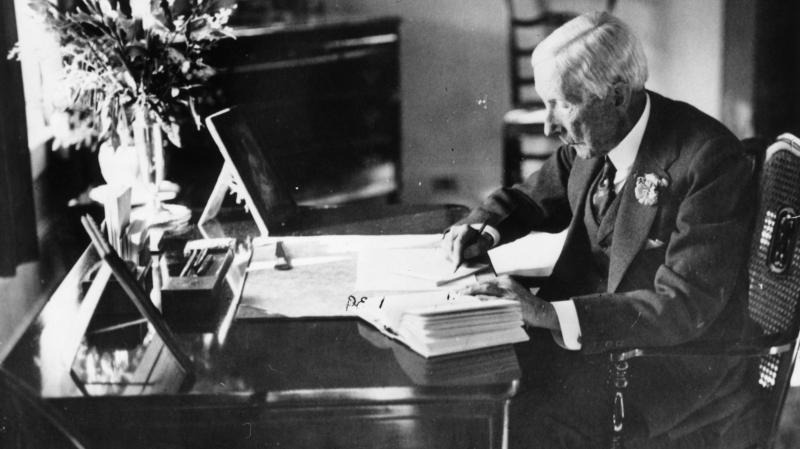
ThoughtCo 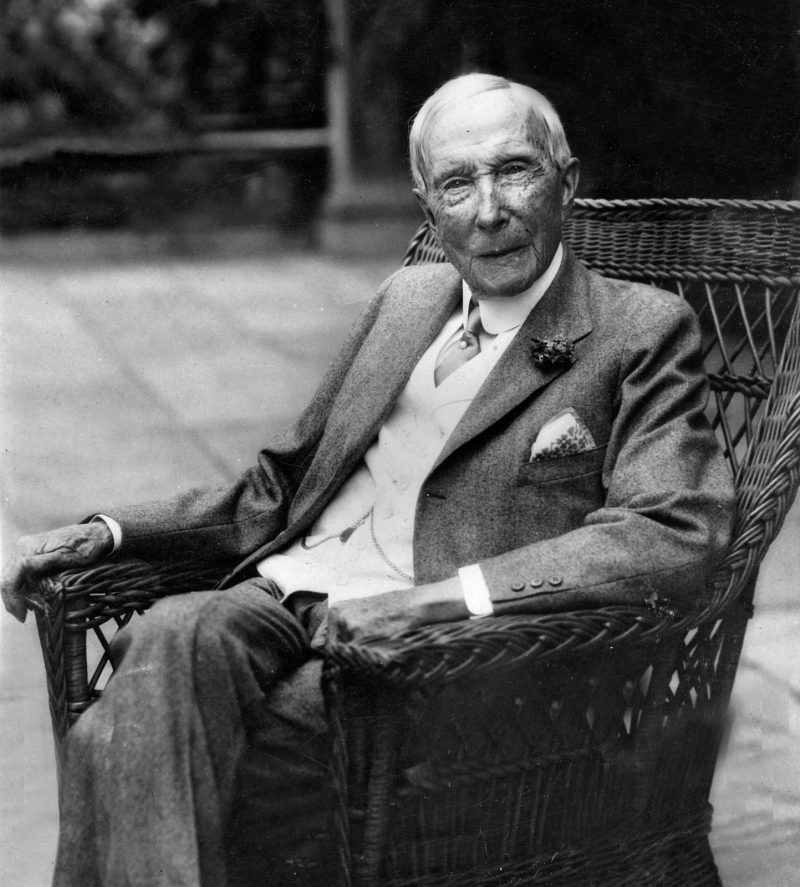
Sidoni.net -
Thomas Edison (1847-1931) was an American inventor and businessman who created and commercialized several important technologies of contemporary life. His Edison Electric firm was a pioneer in bringing direct current power straight into people's homes. He obtained nearly 1,000 patents for various technologies. Most importantly, he developed mass-production techniques to make his ideas affordable to households across America. His most notable innovations are the electric light bulb, phonograph, motion picture camera, electric car, and electric power plant.
Edison has always enjoyed experimenting, particularly with chemicals. These efforts, however, frequently landed Edison in hot water. When working on a night shift at Western Union, his lead-acid battery poured sulfuric acid through the floor onto his boss' desk after a science experiment detonated on the train. The next day, Edison was dismissed.
Despite scraping by in poverty conditions for the next few years, Edison was able to devote the most of his time working on innovations. On June 1, 1869, he got his first patent for the stock ticker. This would subsequently net him a sizable fortune.In the 1870s, he sold the quadruplex telegraph rights to Western Union for $10,000. This provided him with the financial resources he needed to build a proper research facility and expand his trials and ideas. Edison once described his inventing processes as requiring a great deal of hard effort and trial and error before a method was successful.
By 1877, he had invented the phonograph (an early predecessor of the gramophone player), which sparked considerable attention and awe as one of the earliest audio recording technologies. This one-of-a-kind invention earned Edison the moniker "The Wizard of Menlo Park." Others will eventually improve on Edison's system, but he made a significant step forward in developing the first recording device.
Edison began making the electric light bulb with William Joseph Hammer, and it was a huge commercial success. Edison's breakthrough was the use of a carbonized bamboo filament that could survive for more than 1,000 hours. To capitalize on his discovery, he established the Edison Electric Light Company in 1878. Edison correctly prophesied that he could produce electric light so inexpensive that it would soon become widespread. He focused on power distribution to capitalize on the success of the electric light bulb. His initial power station could supply direct current to 59 clients in lower Manhattan.
Edison's studios now occupied two blocks and could stock a vast array of natural materials, implying that nearly anything and everything could be used to better designs. This was a major reason in Edison's success throughout this period of innovation.
During the early days of electricity generation, Edison was embroiled in a conflict between his direct current (DC) method and George Westinghouse's AC (alternative current) system (and developed by Nikola Tesla, who worked for Edison for two years before leaving in a pay dispute.)Edison was also a big fan of Enlightenment theorist Thomas Paine. In 1925, he published a book praising Paine; he also held similar theological ideas to Thomas Paine - no specific religion, but believed in a Supreme Being.
Edison created numerous significant media inventions and developments. The Kinetoscope (or peephole view), the earliest motion movies, and improved photographic paper were among them.In West Orange, he became acquainted with Henry Ford, the industrial billionaire, and was an active member of the Civitan society, which involves doing things for the local community. His rate of invention dropped in his final years, although he kept occupied with projects like trying to find a home source of natural rubber. He was also a part of the first electric train to leave Hoboken in 1930.
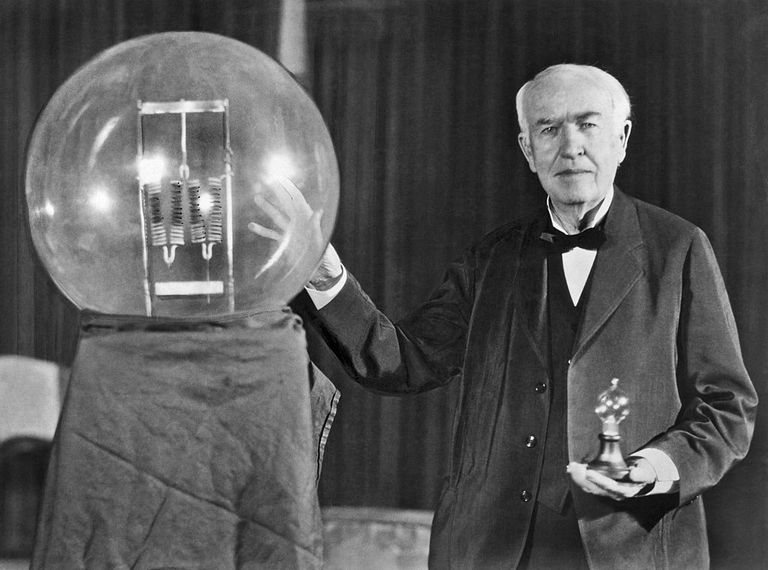
www.greelane.com 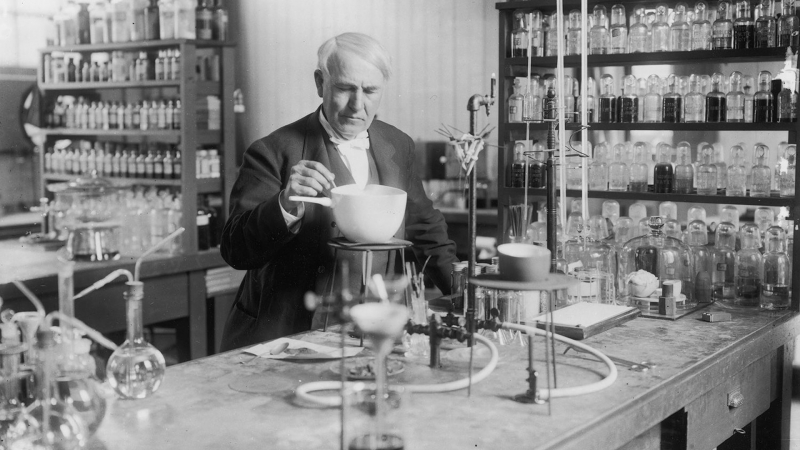
Recursos de Autoayuda -
From 1901 to 1909, Theodore Roosevelt served as the 26th President of the United States. He was a leading character of the Progressive Era, helping to reform big businesses' abuses and corruption while also supporting liberal reforms.
Roosevelt had a remarkable personality; he loved the outdoors, was an excellent hunter, and campaigned to establish the first American National Parks. He was also a writer, having written several volumes on military history. In 1906, he received the Nobel Peace Prize for his effective efforts to stop the Japanese-Russian war. At home, he built the US Navy and backed US participation in World War I.
Despite his youth, Roosevelt was elected as a Republican state assemblyman in New York, launching his political career. He established a name as an anti-corruption state assemblyman in New York, uncovering examples of corruption by wealthy persons and judges. This helped enhance his prominence, and by the 1884 Presidential Campaign, he was a state Republican party leader. He temporarily resigned from politics and relocated to a ranch in Medora, North Dakota, after his reforming candidate lost the nomination to James G. Blaine and the shock of family members passing away.
William Lafayette Strong appointed him to the board of the New York City Police Commissioners in 1895. Roosevelt launched his characteristically lofty reforms to root out corruption and promote officers based on merit rather than party affiliation. Roosevelt took his position seriously, having been stirred by a book on New York's crime-ridden districts written by writer Jacob Riis. Roosevelt took a special interest in these crime-ridden neighborhoods and worked to change the way the law was applied. He would even roam the streets late at night to ensure that police officers were carrying out their jobs. His reforms sparked a feud with Tammany Hall, and the police commissioners were eventually legislated out of existence.
Following the presidential election of 1896, Republican President William McKinley appointed Roosevelt to the position of assistant secretary of the Navy. In actuality, Roosevelt served as the true Secretary of the Navy since he was far more energetic and dynamic than his official boss. In 1898, Roosevelt was influential in mobilizing the navy to battle the Spanish navy, which was then stationed in Cuba. Roosevelt was a stronger supporter of war than McKinley. Roosevelt supported the Monroe concept and wanted Europeans expelled from the Americas. When war broke out, Roosevelt quit his position so that he could sign up for active duty, forming the First United States Volunteer Cavalry Regiment. This newly established regiment, known as the Rough Riders, was made up of a varied group of volunteers. Roosevelt used his national guard experience to teach his men basic military techniques. Roosevelt led his men on a mission to conquer Kettle Hill on July 1, 1898. He was the only man with a horse and rode between gun positions often. Despite advancing over open land, the campaign was a success, and the regiment captured the post. Later, he described it as "the greatest day of my life."
Roosevelt was narrowly elected governor of New York in 1898. He used his position to push for more regulation of businesses, particularly those that benefited from a state franchise. Roosevelt enacted the Ford Franchise-Tax Act, which taxed these state-supported businesses. He successfully straddled the line between free-market capitalism and socialist radicalism. Roosevelt's political clout earned him the position of Vice President under President McKinley in 1900. Despite their differences, McKinley hoped Roosevelt would help him win the popular vote. Roosevelt's boundless energy and fervent campaigning aided the Republicans' triumph. He also ran on his military background and advocated for the annexation of the Philippines.
President McKinley was shot by a lone anarchist in September 1901 and died as a result of his injuries. It meant that Roosevelt became President only a few months into the Presidential campaign. As President, Roosevelt was more vocal in his support for the regulation of major corporations (Trusts) that were thought to be abusing their monopoly status. He took 44 trusts with him, including the highly significant probe of John D. Rockefeller's Standard Oil.
In 1902, he also backed the establishment of the United States Departments of Commerce and Labor. After a coal strike erupted in May 1902, Roosevelt personally intervened to mediate a settlement. Both parties made compromises, including modest wage increases for workers. Roosevelt declared that he desired a "square bargain" with both labor and capital. He became more radical toward the conclusion of his reign, proposing a progressive income tax, a tax on inherited wealth, and plans for establishing a welfare state.
Roosevelt was also involved in other activities. He supervised railroads, probed corruption, and negotiated new agreements to make harmful chemicals in food illegal. Roosevelt was one of his generation's most activist presidents. His desire for reform and regulation extended to a wide range of issues, albeit Congress did not always back him up, particularly during his second term. He issued almost 1,000 executive orders, setting a new record. Following the Financial Crisis in 1907, Congress had become increasingly rebellious, with conservative Republicans vetoing the president's ideas.
Roosevelt oversaw a period of mass immigration. He reorganized the federal immigration depot at Ellis Island, where millions of people were processed. He was a firm believer in immigrant Americanization. He assumed that immigrants would only revere the American flag. In the First World War, he was critical of Irish and German immigrants for their antagonistic attitude toward the Allies. In terms of race, Roosevelt appointed some African Americans to federal positions but did nothing to alter entrenched southern policies. He considered slavery to be a major sin. When it came to race, Roosevelt saw America's mixed-racial society as a difficulty, yet he campaigned for equal treatment in typical form. However, near the conclusion of his presidency, he exacerbated racial tensions by crusading against 'race suicide' - Roosevelt was concerned about low birth rates among white voters, which resulted in a reduction in the white percentage of the US population.
During his presidency, Roosevelt implemented a number of conservation programs. He established five new national parks as well as 18 new national monuments. He also established numerous additional places of preservation, ranging from forests to game reserves. He regarded it as one of his greatest legacies as a great outdoorsman.
As president, Roosevelt worked to strengthen the United States Navy. Despite his public support for the annexation of the Philippines, he lost interest in Asia. Perhaps his most major project was the Panama Canal, which would be a vital commerce route for shipping products from the East Coast to the West Coast by ship rather than cross-country. Roosevelt was chastised for overpaying the Panama Canal Company.
Roosevelt had tremendous success as an international mediator in foreign policy. He was instrumental in reaching a resolution to the Russian-Japanese war. In 1906, he received the Nobel Peace Prize for his efforts. Under Roosevelt, ties with the United Kingdom improved dramatically, removing any remaining grounds of contention dating back to the American Revolution. From 1902-03, Roosevelt was crucial in bringing European nations and Venezuela to the Hague for arbitration.
Roosevelt is credited with transforming American political life and introducing liberal reforms that counterbalanced monopoly trust power. In 1927, he was honored with George Washington, Thomas Jefferson, and Abraham Lincoln at Mount Rushmore.
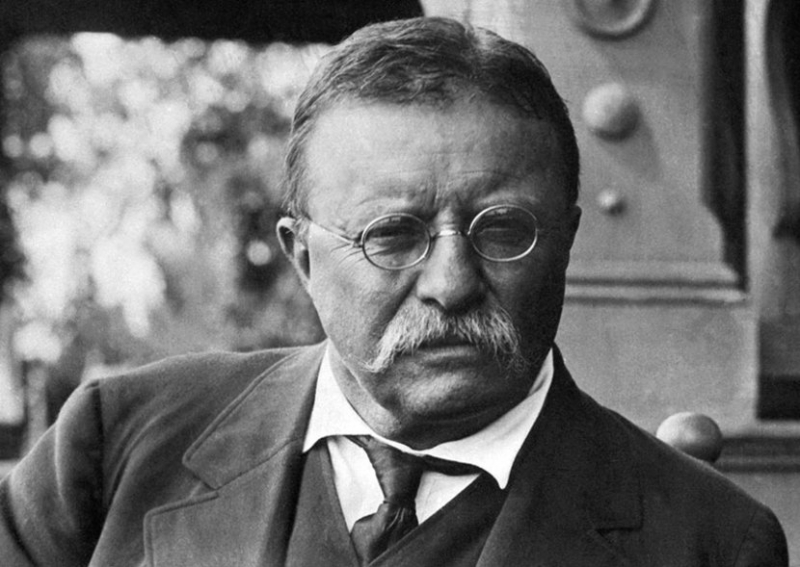
VnExpress 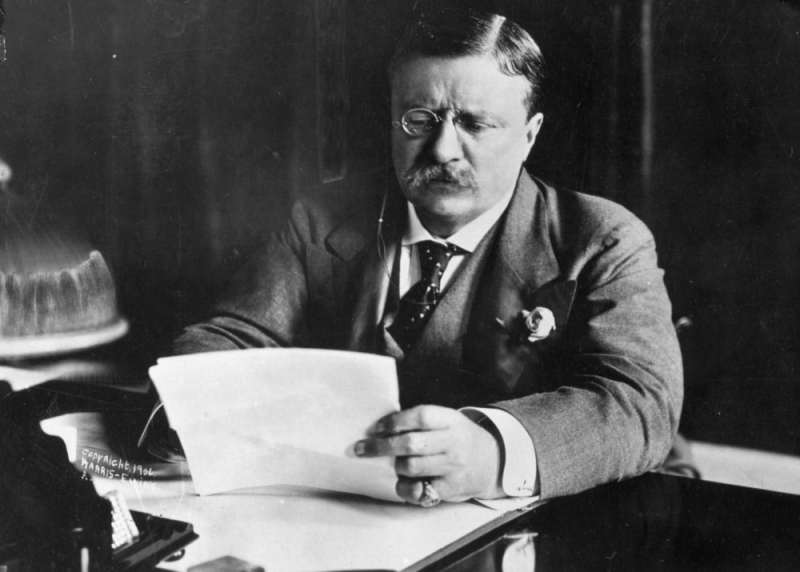
YOURE Blog -
Henry Ford (1864-1947) was the founder of the Ford Motor Company. Ford pioneered the use of the assembly line in the production of automobiles, which helped to lower costs and make automobiles affordable to the typical American consumer. The Model T Ford automobile was crucial in enabling broad car ownership following World War I. Due to enhanced productivity, Ford was also able to offer higher compensation to employees.
Although Ford played an important role in the company's development, in the early days, he relied mainly on the organization and administration of his Canadian partner James Couzens to advertise and distribute the automobiles. Couzens had a keen business sense. However, Ford and Couzens frequently clashed, and Ford resented Couzens' exorbitant income ($150,000 per year in 1914). Couzens sold out and departed the company in 1915. Ford continued to grow and expand, but by the 1920s, competing automakers were beginning to chip away at Ford's dominance. General Motors and Chrysler, in particular, emulated Ford's efficiency while also offering superior cars, such as those with an automatic starter.
War was something Henry Ford despised. In 1915, he helped sponsor a peace ship to Europe and spoke out against the "vague financiers who encourage war." In the run-up to World War II, he, like many Americans, embraced isolationism. Even after the attack on Pearl Harbor, he refused to participate in the Second World War effort, allowing other authorities in the Ford corporation to develop Ford into one of the largest military jet producers of the war. Henry Ford was not a member of any political party. However, Woodrow Wilson persuaded him to run for the Senate as a Democrat in 1924. He did not return to party politics after barely losing his attempt.
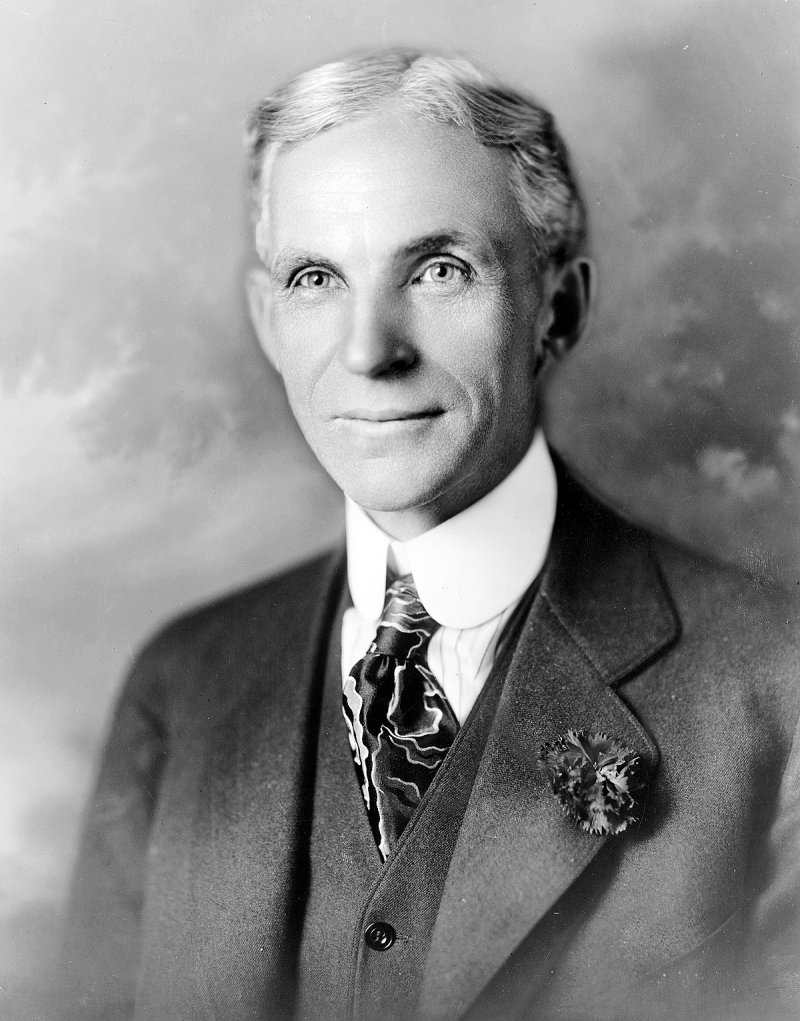
Wikipedia 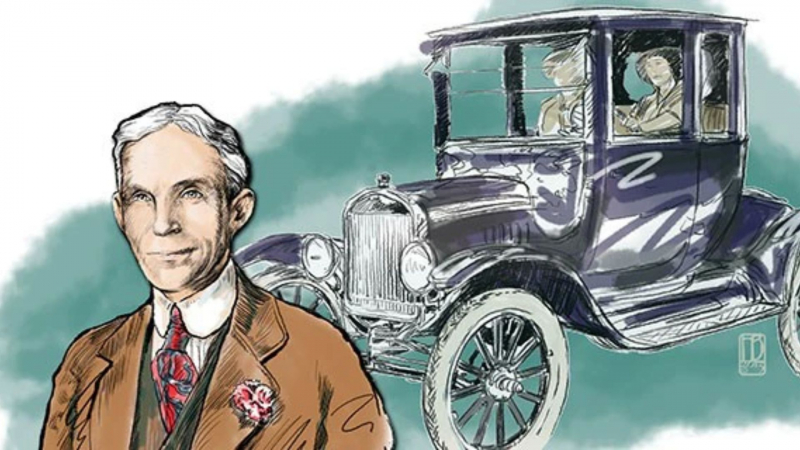
CafeBiz -
Franklin Delano Roosevelt (January 30, 1882 – April 12, 1945), also known as FDR, was the 32nd President of the United States. He served during the Great Depression and World War II. FDR was elected President in 1932, at the height of the Great Depression, and served until his death in 1945. During his administration, he oversaw the Federal Government's expansion and helped America shed its isolationist position as it led the way in defeating the axis countries - Japan and Germany - during World War Two. As the war ended, he helped to create the groundwork for the United Nations. Roosevelt was a major figure in both American and global politics.
FDR was elected governor of New York in 1929, which served as a springboard for his quest for the Democratic nomination for President in 1932. With America confronting an unparalleled economic crisis, with unemployment exceeding 25%, Roosevelt was able to win by a landslide, providing hope to many who had become destitute as a result of the Great Depression.
FDR pursued an expansionary fiscal strategy, similar to that espoused by John M Keynes. The government borrowed money, imposed a national income tax, and spent it on public works projects (known as the New Deal). This period also saw a transfer of power from local administrations that were unable to compete with the national government. Roosevelt also assisted in the introduction of legislation to defend the rights of workers. The New Deal did not end the economic crisis, but it did alleviate some of its harshest consequences by providing jobs and subsequently reviving the economy. Some sectors of the economy, such as building, were thriving by the end of the 1930s. The rebound was sufficient to help Roosevelt's re-election in 1936. With Nazi Germany spreading across Europe in 1940, Roosevelt chose to defy convention and become the first president to run for a third term. In 1940, he achieved another landslide victory.
FDR desired for America to become a good global citizen and to fight for certain freedoms. However, America remained a very strong isolationist policy in the early 1940s, and in 1940, he campaigned for re-election promising to stay out of World War Two - despite his own detest of Nazi Germany. However, as Britain's situation deteriorated in 1941, FDR effectively negotiated a large lend-lease package that aided the country financially when it stood alone against Hitler. When their houses were on fire, Roosevelt compared it to handing a neighbor a hosepipe. His expertise aided the bill's passage through a hesitant Congress. The bombing of Pearl Harbour in December 1941 profoundly altered America's worldview. FDR lost little time in declaring war on Japan, followed by Germany.
Many historians consider Roosevelt to be the greatest US President of all time (or at least in the top 3). He led the United States through one of the world's most challenging crises. At a time when many countries have embraced fascism, the United States democracy is being strengthened. He also established Federal unemployment assistance and the beginnings of a social safety net, which aided in keeping the country together during a period of economic disaster. Roosevelt was also crucial in leading the United States' war effort against Japan and Germany. He was a talented diplomat who successfully collaborated with Churchill and Stalin in one of the most crucial military alliances in history. When Roosevelt took office in 1932, the United States was in a deep slump and was isolated on the international stage. When he died in 1945, the United States had emerged as the world's preeminent economic and political powerhouse, and when the United States emerged as the dominant military force, he was the Allies' most influential voice.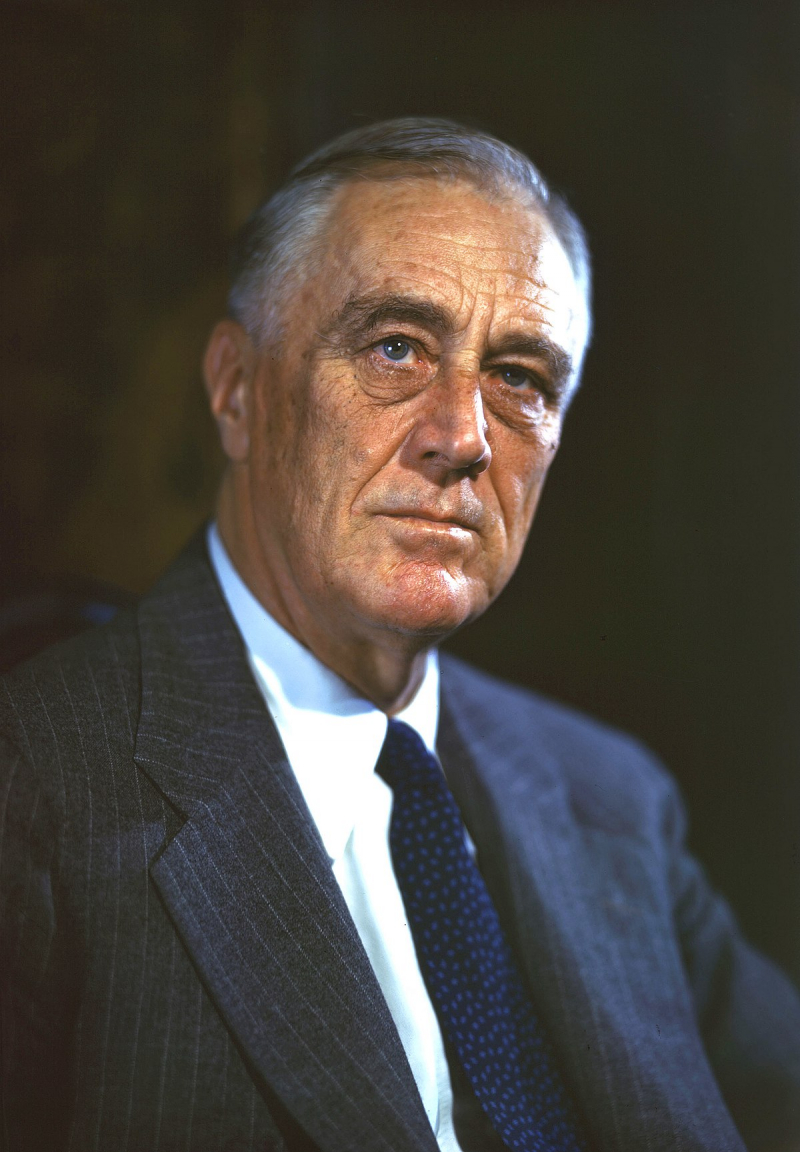
Wikipedia 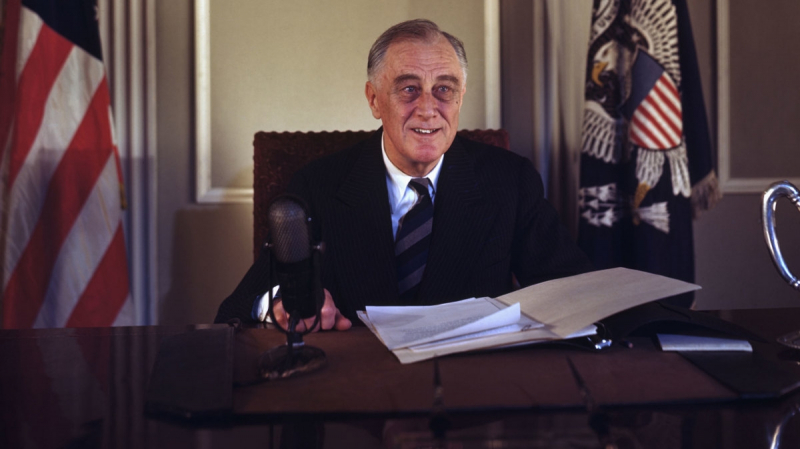
VOV



























